The 30 best games of the decade
10 years that changed how we play
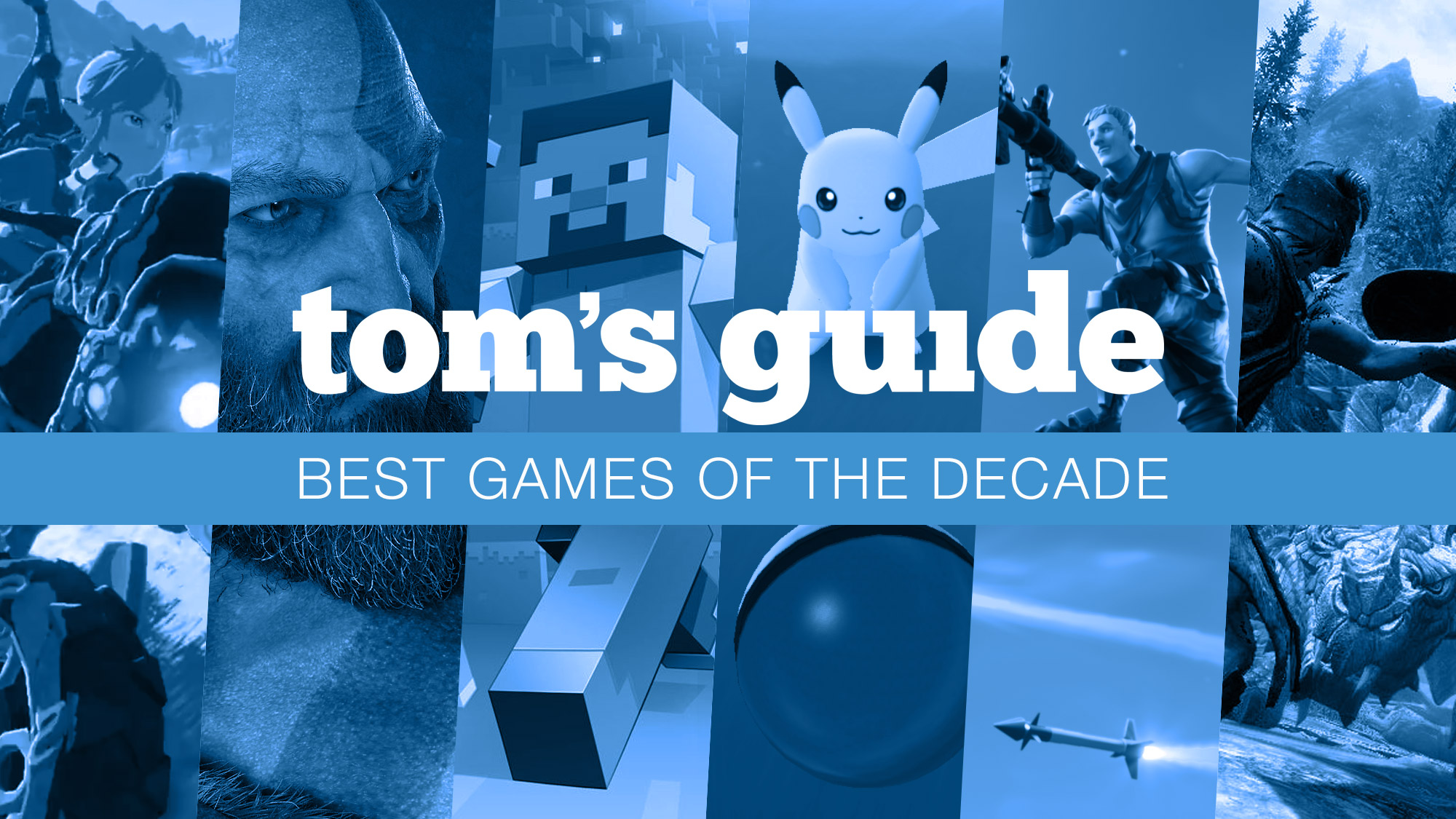
What a decade it's been for video games. We saw the PS4 and Xbox One make console games more gorgeous and immersive than ever, while the Nintendo Switch showed up a few years later to successfully fuse handheld and home gaming.
Masterpieces such as Red Dead Redemption, God of War and The Legend of Zelda: Breath of the Wild set a new bar for AAA titles. We witnessed the rise of always-evolving games-as-services in the form of titles like Overwatch and Rocket League. But perhaps most significantly, social games like Pokémon Go, Fortnite and Minecraft completely changed the way we play, whether it's meeting up with friends in real life to catch a Mewtwo or watching a live concert in the middle of a battle royale arena.
Picking just 30 out of the hundreds of incredible games of the 2010s was no easy task. We settled on titles that not only mean something to us personally, but that also significantly changed the gaming landscape over the years. After several long debates, here are our picks for the 30 best video games of the decade.
30. Fortnite Battle Royale (2018)
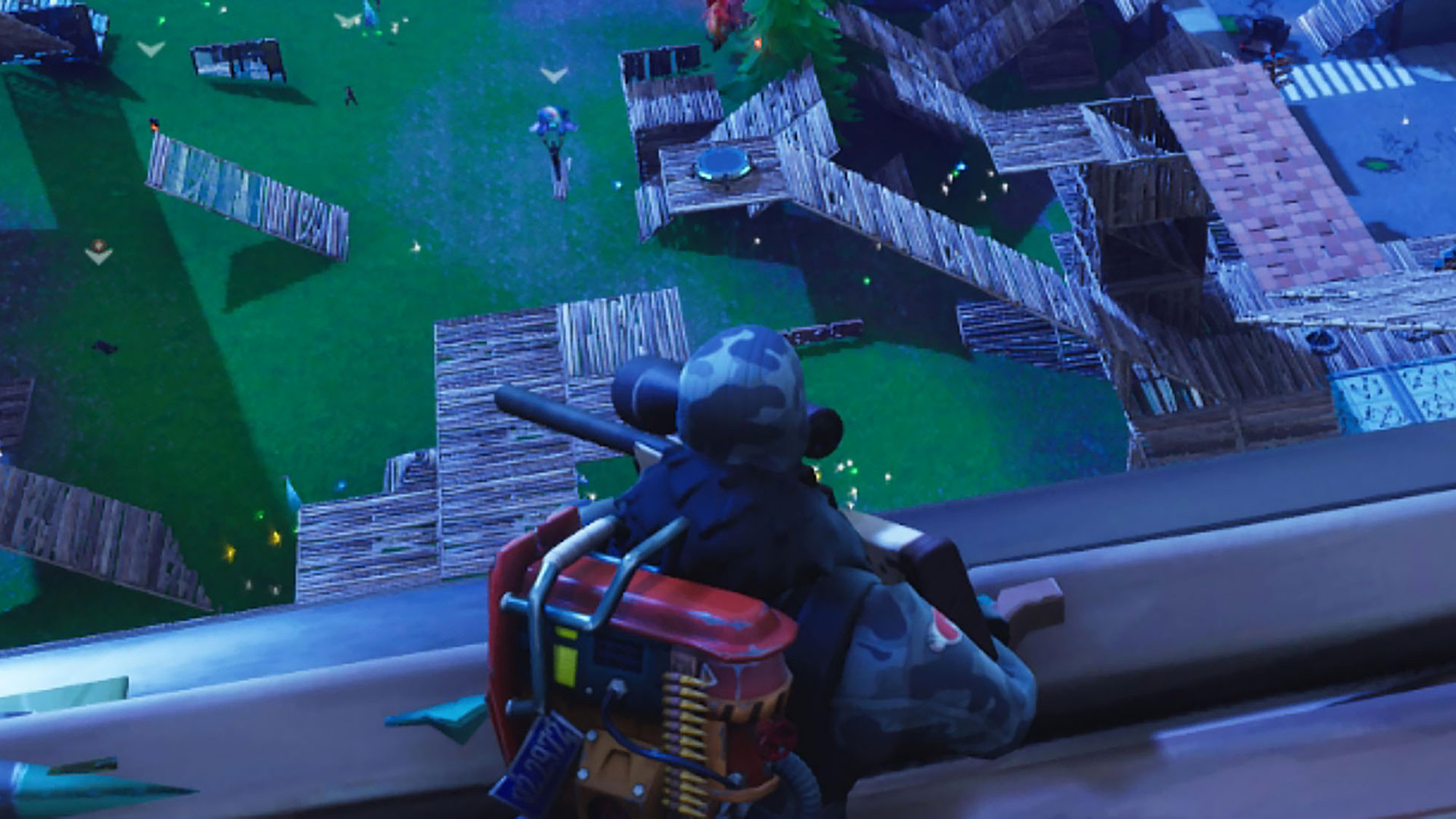
The most divisive game of the decade landed at the bottom of our list, but we understand why you might think it should be at the top. Fortnite didn't invent the battle royale genre (hat tip to DayZ and PlayerUnknown's Battlegrounds), but Fortnite did turn the genre into a phenomenon. In addition to being free, Fortnite offered a whimsical nature that has attracted millions of gamers looking for a shooter that doesn't take itself seriously. Fortnite has even taken off on the esports scene, in part because of the life-altering dollar amounts the world's best players have won.
It's easy to dismiss Fortnite as a copycat that undercut its competitors by relying on microtransactions, not game sales. But that wouldn't be doing it justice. Fortnite's building mechanic, however frustrating, adds a unique dynamic to the gameplay, and Epic Games does a fantastic job keeping things fresh with new content, including weapons, locations, maps, skins and items.
We can argue its merits for years to come, but ultimately, once you can get over its steep learning curve and excruciating difficulty, Fortnite is tons of fun to play with friends. For that reason, it deserves a spot on this list. — Phillip Tracy
29. Forza Horizon 4 (2018)
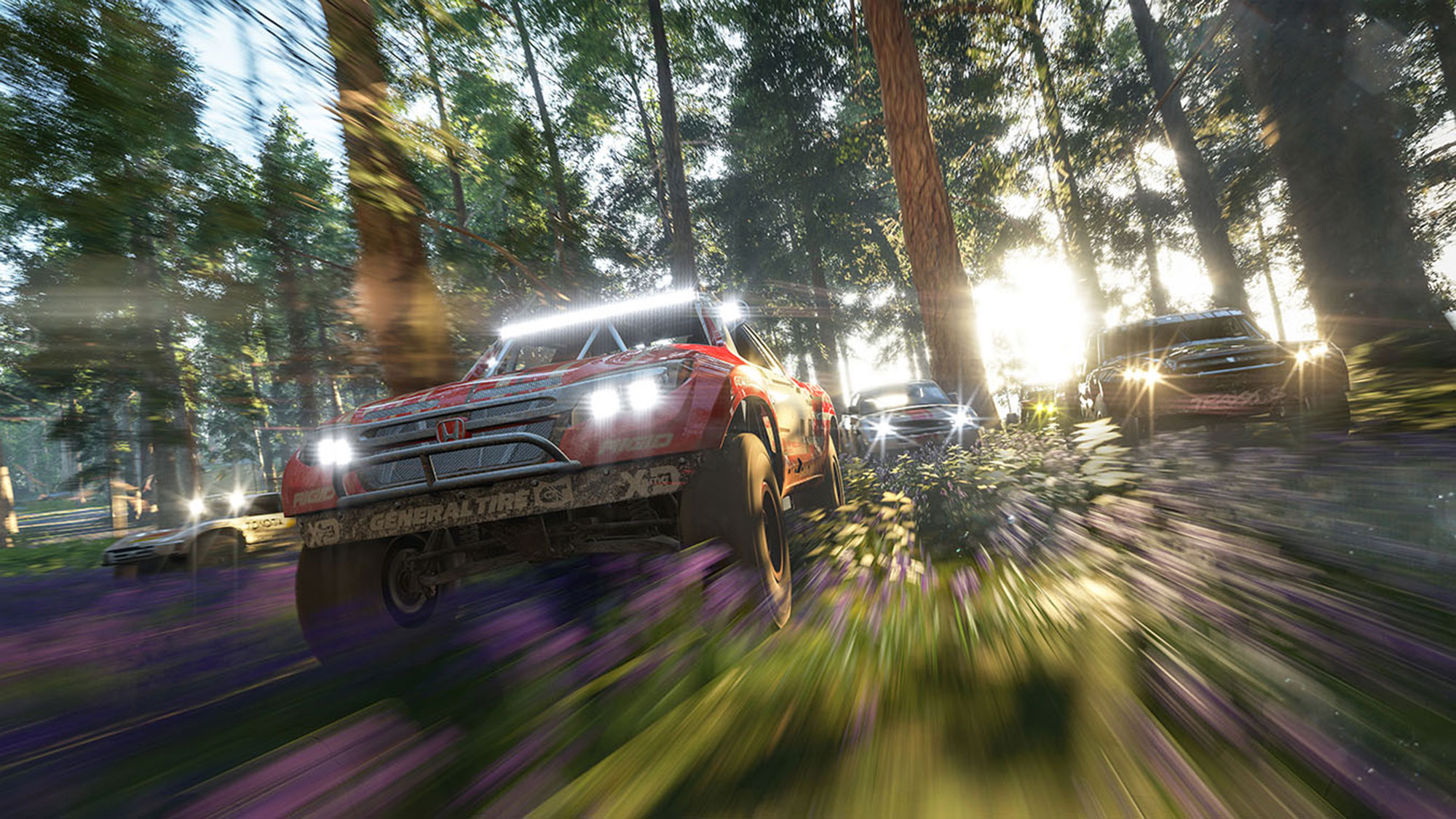
A funny thing happened with Microsoft's racing franchise in the last decade, when Forza Motorsport was spun off into the semi-arcadey, open-world offshoot known as Forza Horizon. And although nobody knew it when the series launched in 2012, Horizon would ascend to become one of Xbox's prime exclusives, eclipsing the less accessible Motorsport franchise in sales.
Although you could argue that the series is still on the rise, 2018's Forza Horizon 4 has been the apex of the arc thus far, thanks to gobs and gobs of cars, event types and collectibles, along with a massive, thriving re-creation of the United Kingdom that evolves with the seasons. Arcade racers definitely saw a drop in popularity in the 2010s, yet in turn, Playground Games' take on the Forza formula has risen to the challenge, becoming the default casual racing experience for gamers on Xbox and PC alike. It's not perfect; Horizon 4 is at times too big and unwieldy to really know what to do with itself. Yet, that sheer scale breeds a go-anywhere, drive-anything free-form racing experience that everyone — from those with a passing interest in the genre to the most fervent of gearheads — owes it to themselves to enjoy. — Adam Ismail
28. Assassin's Creed IV: Black Flag (2013)
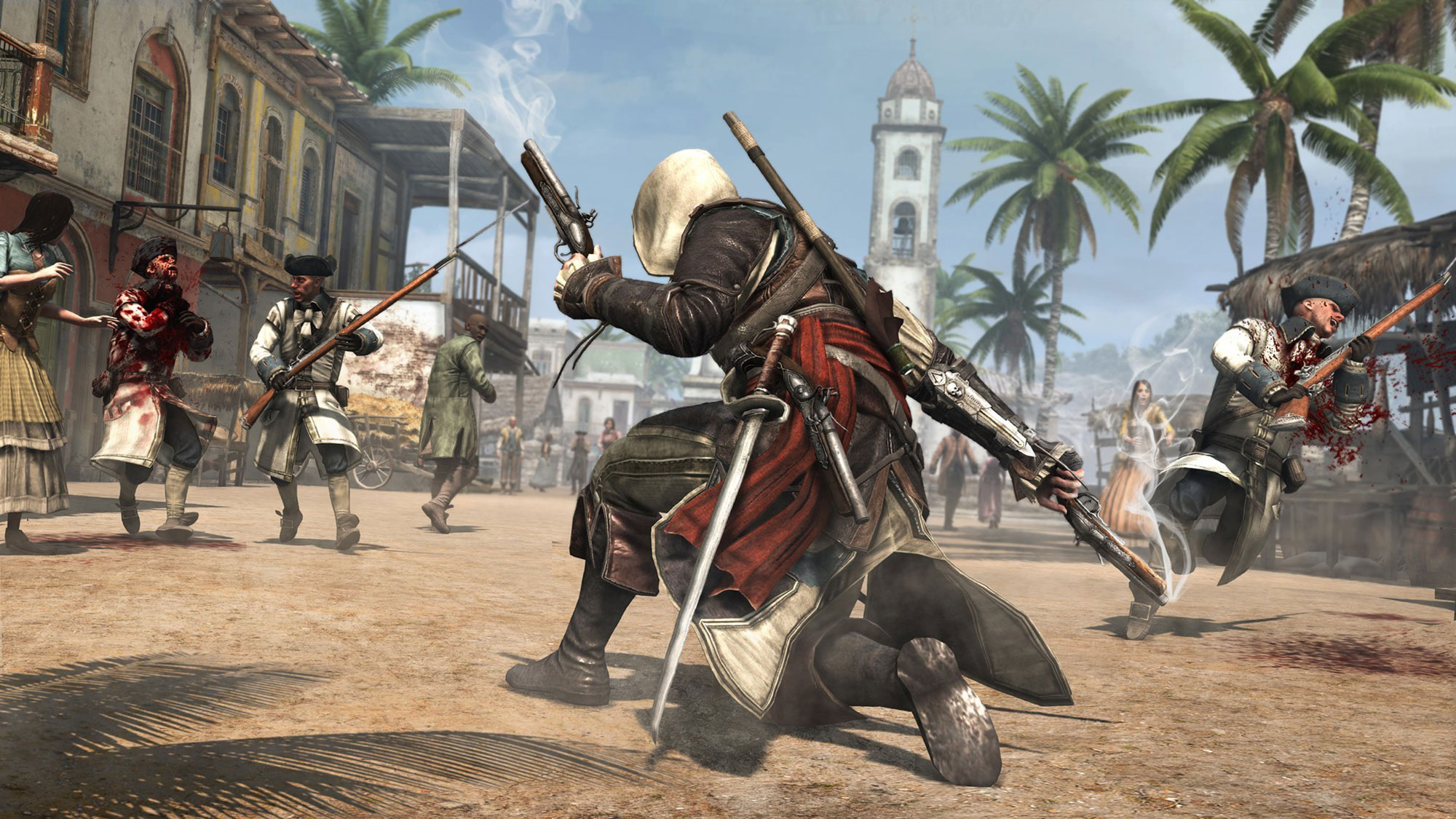
It's really hard to make a good pirate game. Sailing the high seas in search of plunder and adventure sounds like a natural fit for a video game, but few games seem to get the balance right. If the sea combat is good, the swordplay feels lacking. If the world is big and open, the story has nothing to say.
The solution, it turns out, was to set a pirate game in the middle of the ongoing Assassin's Creed storyline. In Assassin's Creed IV: Black Flag, you take control of Edward Kenway, a Welsh privateer in 1715. After Kenway unwittingly kills an Assassin, he becomes embroiled in the millennia-old struggle between the individualistic Assassins and the domineering Templars. At first, this means nothing to Kenway, whose only concern is to fill his coffers with Spanish gold. But as he and his piratical companions struggle through founding a pirate republic in the Bahamas, Kenway begins to realize the value of freedom — and his own role in preserving it for everyone in the New World.
Assassin's Creed IV is so much fun because it perfectly balances exploration and combat on both land and sea. Half the game, you'll sneak around strongholds, perform parkour to evade enemies, and dispatch foes with a variety of cutlasses, pistols and other piratical weapons. The other half, you'll spend aboard your ship, the Jackdaw, where you can hunt other ships for treasure, salvage or crew. The Caribbean is a wide-open setting, with three big cities and dozens of small islands to explore. Whether you're fighting off an enemy fleet or hunting sharks for their hides, there are plenty of rewarding activities.
The attention to detail is what really sets Assassin's Creed IV apart, though. As you sail, your crew will sing period-appropriate sea shanties. You'll cross paths with notorious pirates like Edward "Blackbeard" Thatch and Mary Read. And you'll unearth more clues about the ongoing Assassin's Creed metastory, which kicked off its second major arc in this game. — Marshall Honorof
27. StarCraft II: Wings of Liberty (2010)
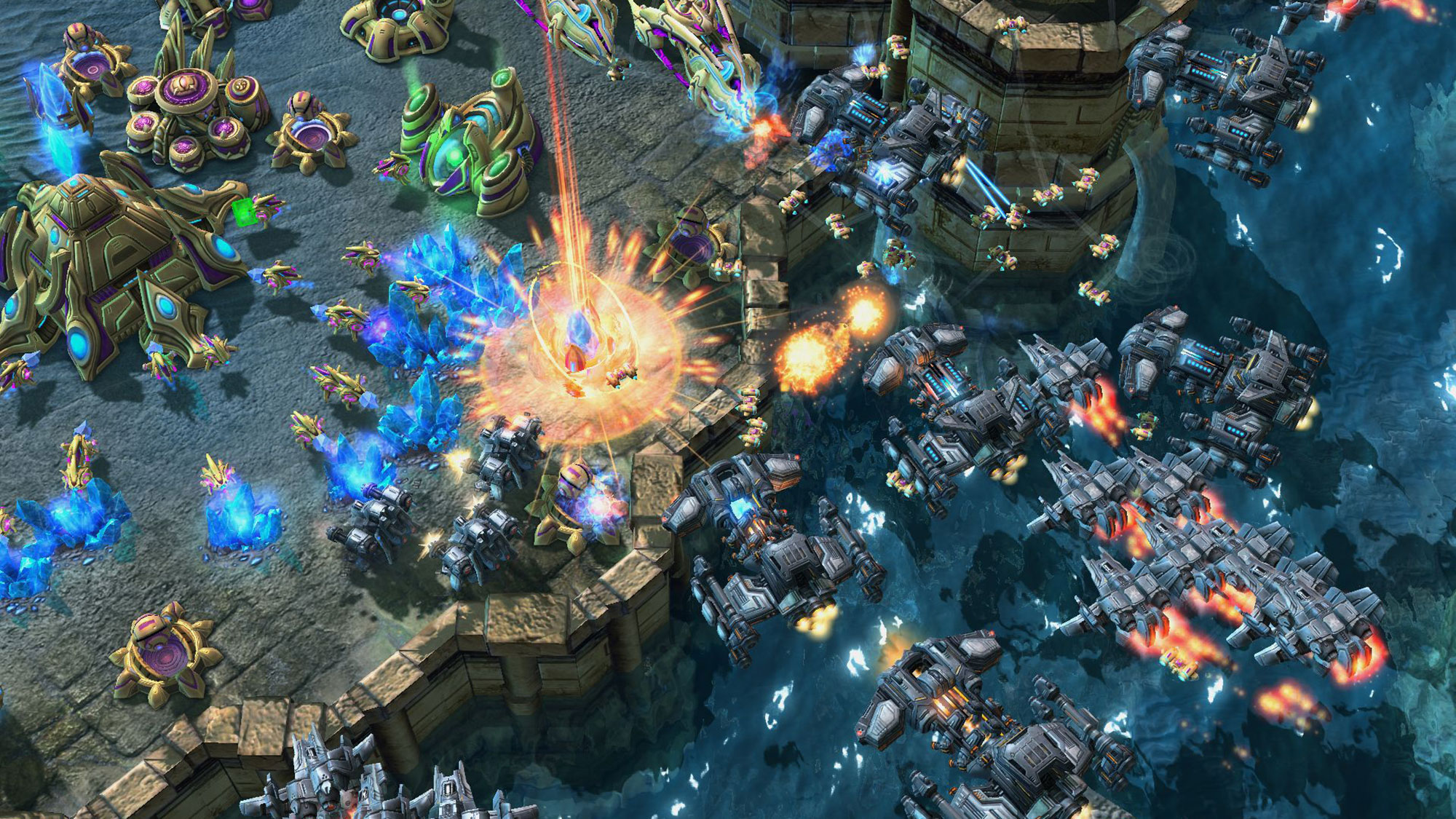
Starcraft II: Wings of Liberty lives up to the lofty expectations die-hard fans set for the sequel to a classic. Released more than a decade after the original, Starcraft II: Wings of Liberty and the two expansions that followed were built upon the foundation of Starcraft but added a slick presentation, modern graphics and new units.
The tweaked army compositions led to exciting new strategies for each of the three balanced races: Terran, Zerg and Protoss. When Starcraft II was released, it quickly cemented its place in the esports scene, which the original game is widely credited for popularizing. The grand esports stage showcases exciting builds each year, with pocketfuls of cash handed to the world's best players.
Online multiplayer modes were improved on all fronts in Starcraft II with a matchmaking system that rivals that of consoles, up to 12-player support and clever ranking tiers that match you with similarly skilled opponents. If the frenetic, mentally exhausting competitive play is too much to handle, don't worry; Starcraft II offers varied single-player campaigns that test your resolve with nonlinear, unpredictable missions. Starcraft II is one of the best games of the decade, and it remains popular today, at a time when RTS games are out of fashion. — Phillip Tracy
26. Threes (2014)
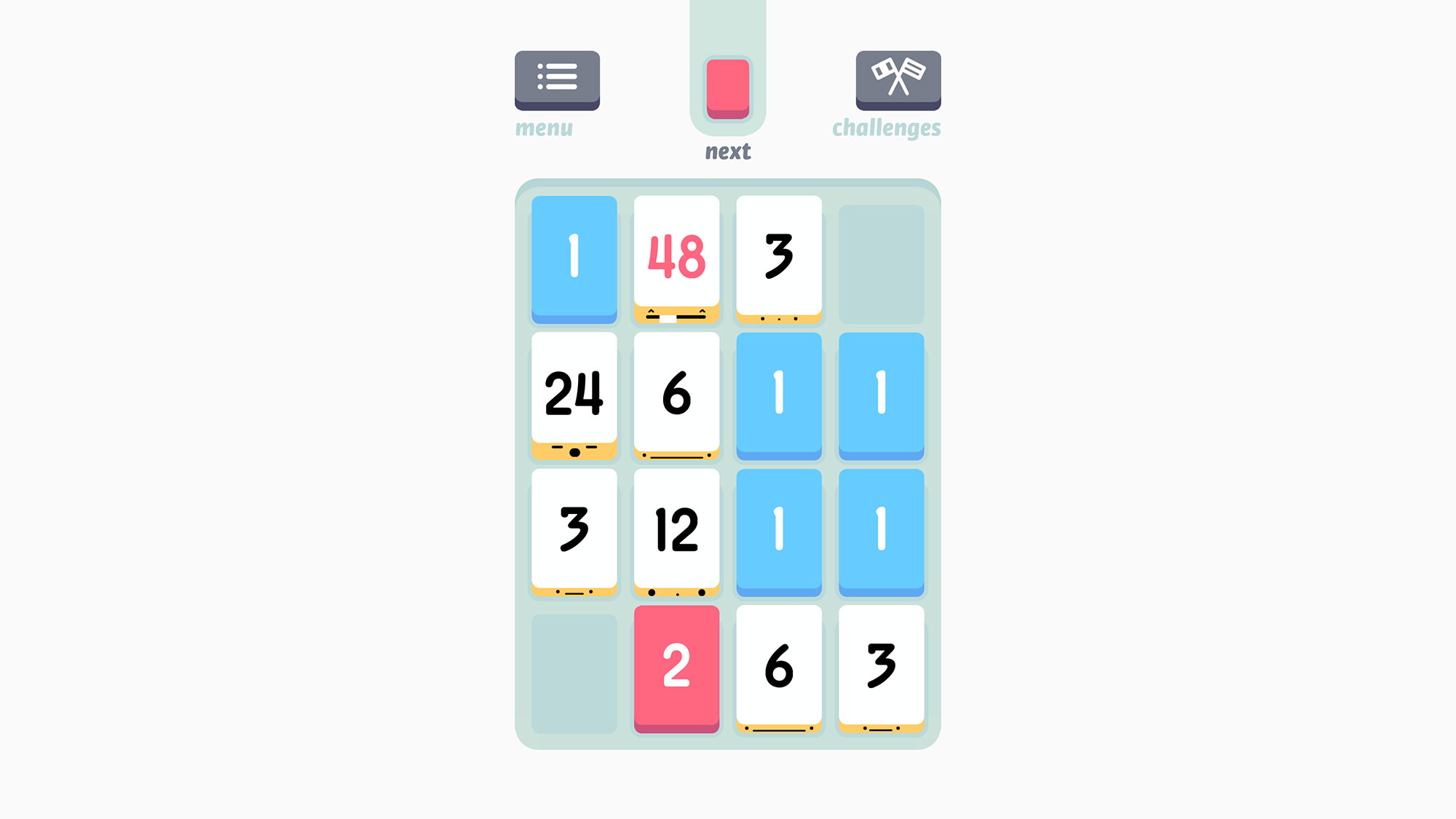
Addition never felt so fun. Threes makes this list because it's the perfect example of a now-ubiquitous category: the simple, yet addictive mobile game. You just add square tiles up — 1s and 2s become 3s, and then 3s pair off to become 6s and so on and so forth — but it all requires strategic planning, and it somehow never got boring.
That longevity (it came out in 2014, and it's still on my phone today) is likely owed to the game's ineffable charm. Not only is its soundtrack a low-key bop, but those square tiles get personality and voices as you add them up higher and higher, giving you reason to keep reaching for greater success.
Oh, and if you don't know Threes, you might know its more-popular knockoff, 2048. Unfortunately, those who have played only 2048 — many prefer its free price — don't get the artful little touches like the music and lively tiles, just the maddening math. And I don't know about you, but I graduated school to get away from math. — Henry T. Casey
25. Rocket League (2015)
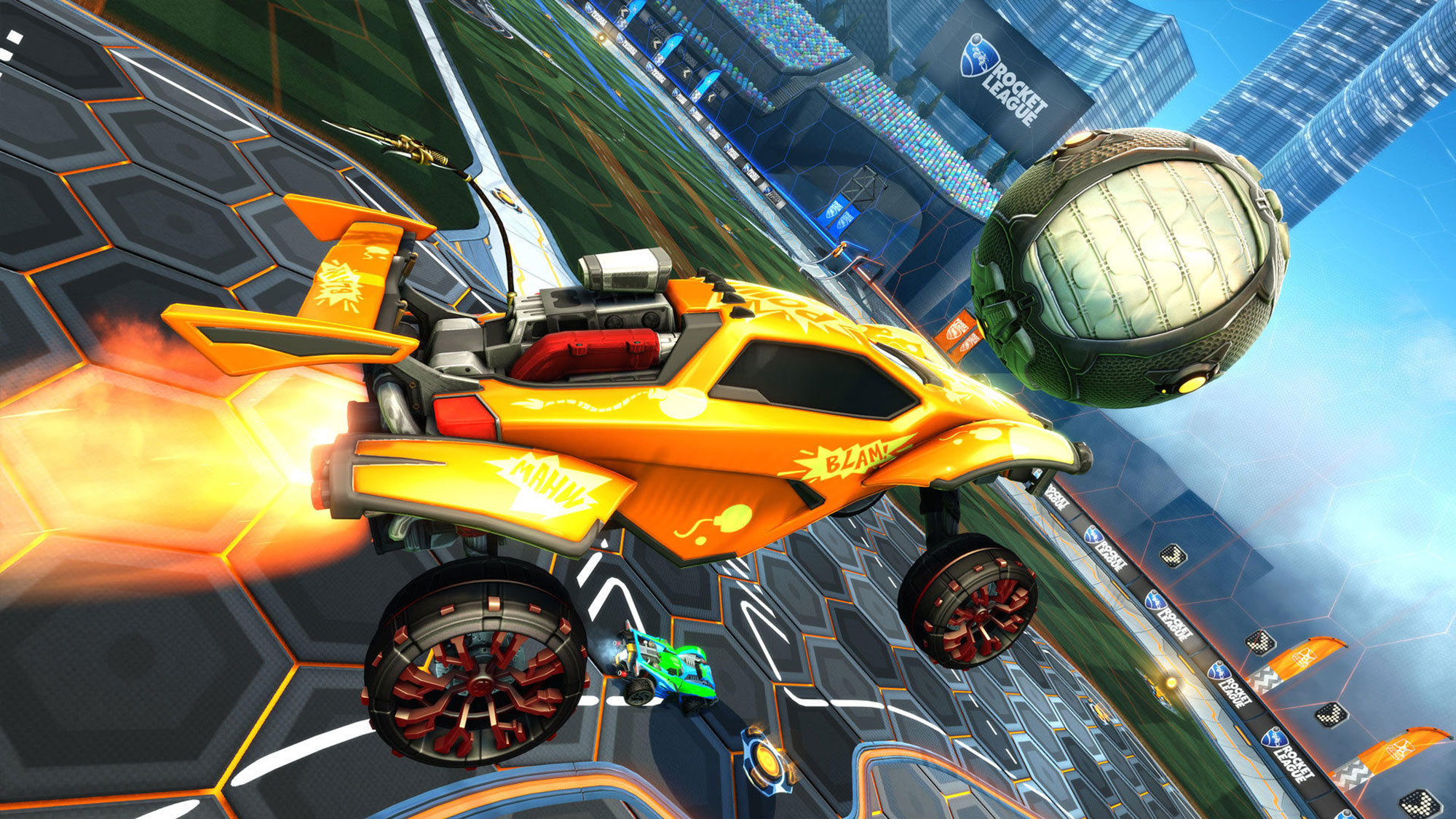
Rocket League didn't single-handedly invent esports; MOBAs, fighting games and first-person shooters demonstrated the heights of gaming's potential as a spectator event many years earlier. But Rocket League was the title that brought esports out of enthusiast circles and into mainstream consciousness, for two very good reasons.
First, "soccer with cars" is easy enough for most people to wrap their heads around, and so Psyonix's title didn't run the risk of spurning newcomers with complex competitive mechanisms and lingo. Second, much like many popular real-world sports, Rocket League is easy enough to pick up, try and enjoy yourself, but it will take you a lifetime to perfect your strategies and master the nuances of the game's unique physics model.
The culmination of these qualities has been nothing short of a phenomenon, both for gamers and the industry at large. Psyonix wasted no time recognizing the immense competitive appeal of what it had created, turning around and holding the inaugural Rocket League Championship Series, in 2016. Five years since the game's release, and with the RLCS now in its eighth season, few esports can deliver the instant thrill and passion that Rocket League continues to elicit from fans. — Adam Ismail
24. Monster Hunter: World (2018)
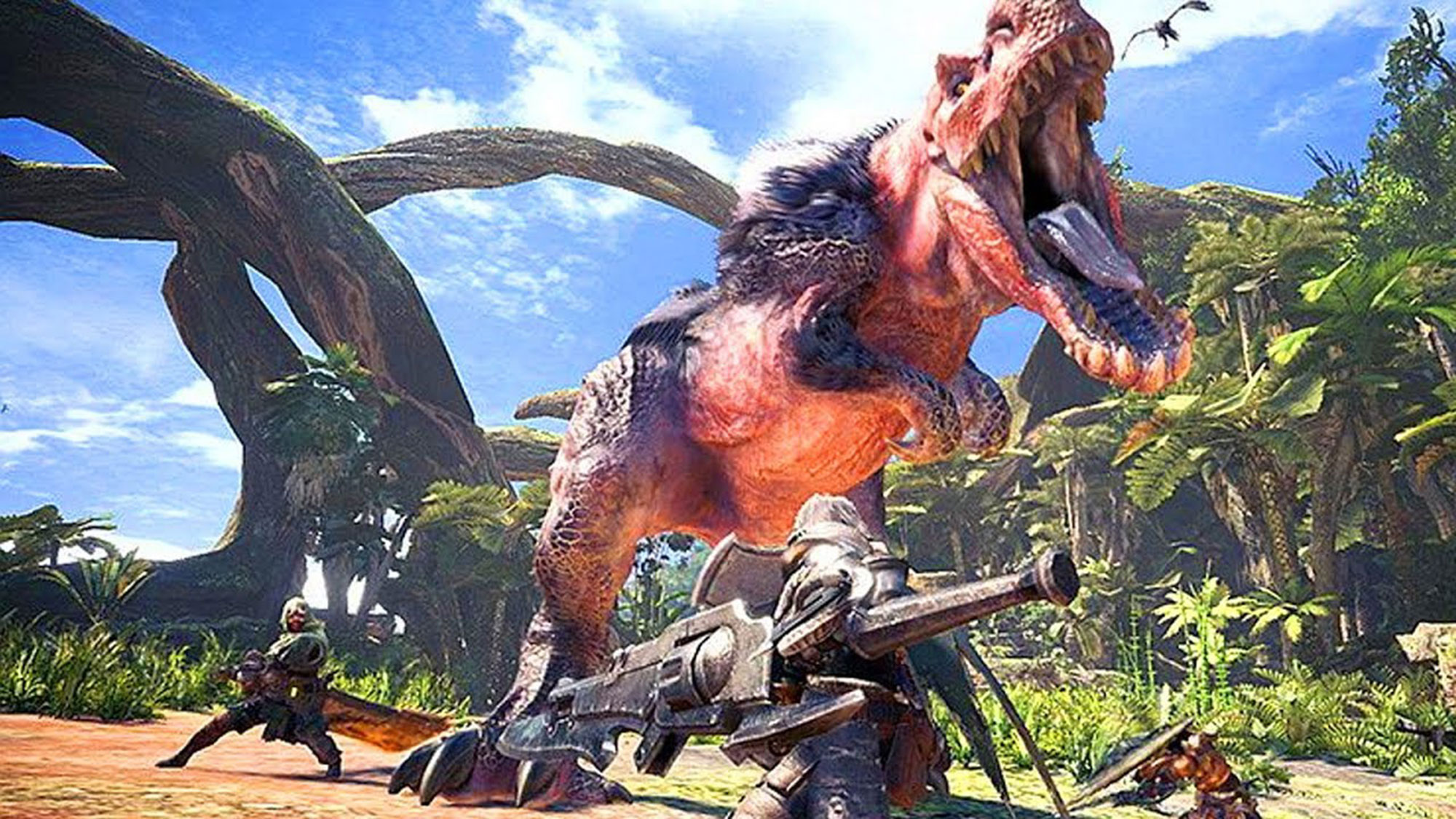
The Monster Hunter series was quite popular in Japan despite starting off slow with the first two games. It didn't reach critical acclaim until Monster Hunter Tri launched on the Wii, but it was still relatively niche in America, especially because the combat system was a little complex and the series was consistently exclusive to certain platforms.
However, Monster Hunter: World changed everything, as Capcom created the most accessible Monster Hunter game to date, launching the title on the Xbox One, PS4 and PC, and crafting straightforward gameplay with copious amounts of tutorials. Top that off with the addition of a reliable co-op experience, consistent free updates and the removal of loading screens, and Monster Hunter: World quickly became one of the best multiplayer experiences currently available. Did I mention that it's hard as hell too? Teamwork makes the dream work in Monster Hunter: World. — Rami Tabari
23. Metal Gear Solid: Peace Walker (2010)
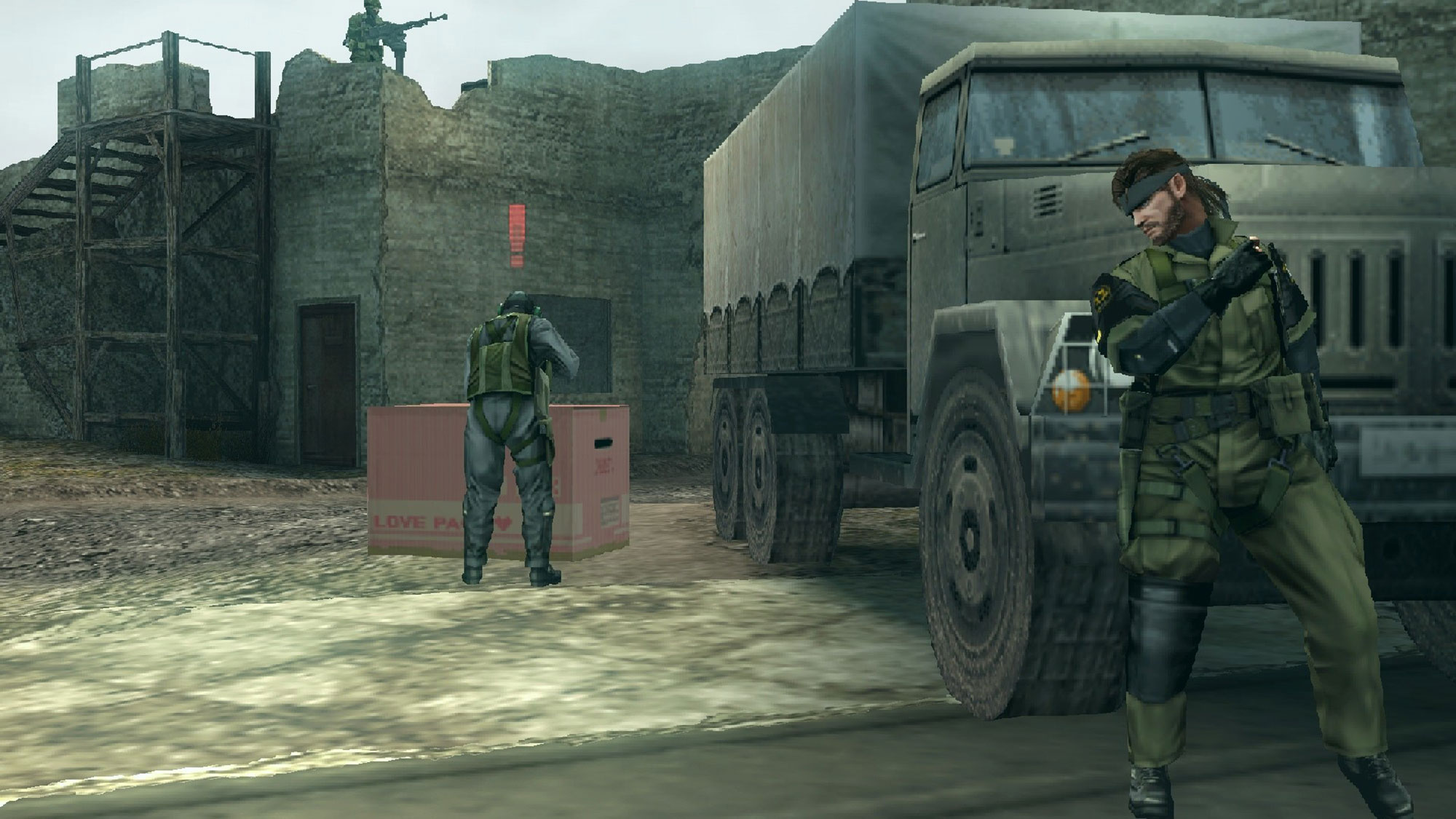
Metal Gear Solid: Peace Walker, aka my favorite game of all time, is a direct sequel to Metal Gear Solid 3 that follows Big Boss on a mission in Costa Rica to liberate the country from a mysterious paramilitary group. Along the way, Big Boss struggles to get over the loss of his former mentor, and that memory literally haunts him in the form of a Metal Gear that he's forced to hunt down.
On top of the superemotional story, Peace Walker offers a full cooperative campaign, featuring awesome Monster Hunter crossover missions, and a PVP mode. Even though it's a PSP game, it managed to take all of the great mechanics from Metal Gear Solid 4 and round them out. And because it's a PSP game, Peace Walker had to do away with the superrealistic cutscenes, replacing them with comic book-style artwork that was sliced and edited to feel even punchier than an in-game scene. — Rami Tabari
22. Pokémon Go (2016)
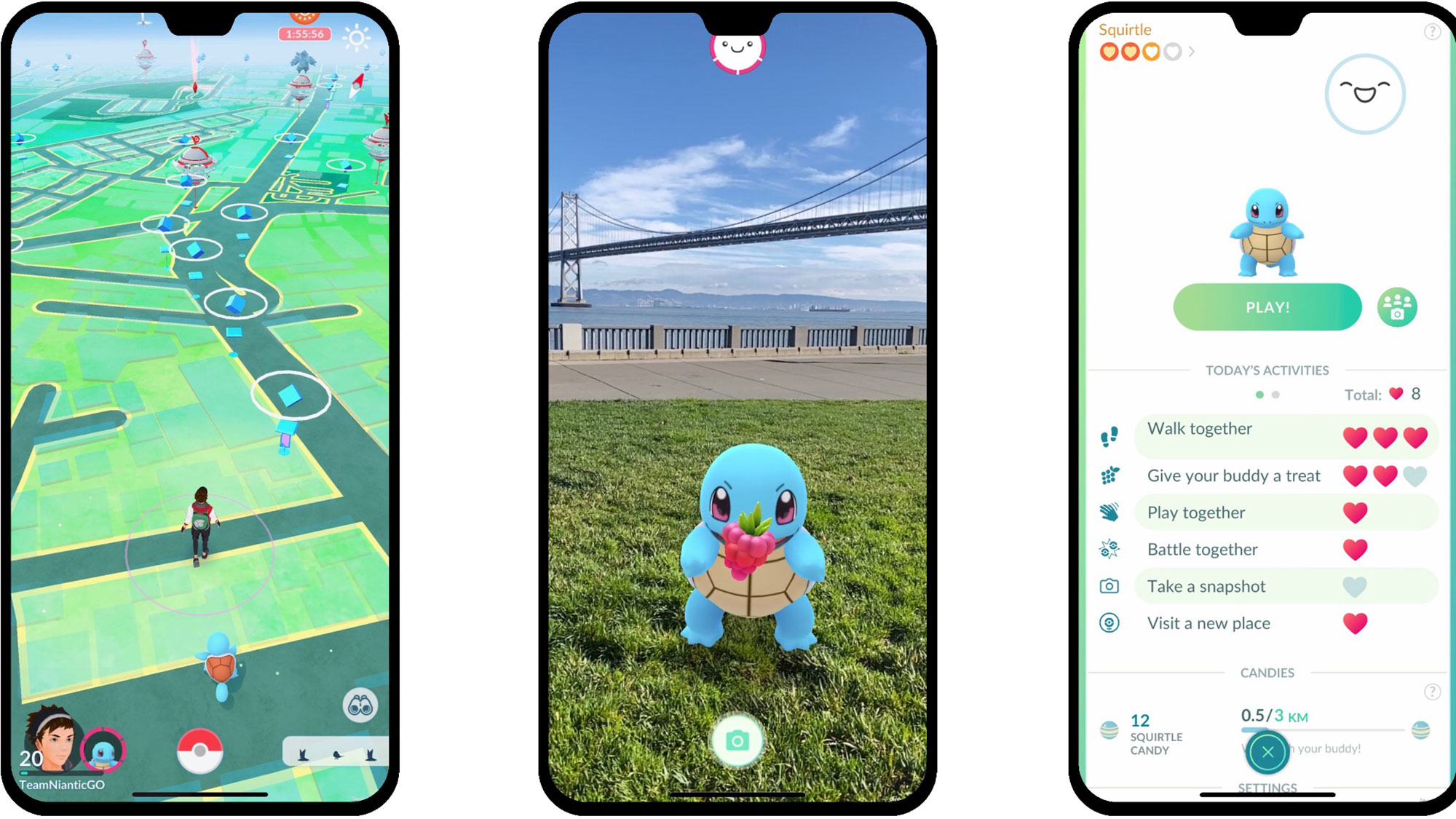
What do you get when you mix Niantic's innovative augmented-reality game mechanics with a beloved franchise like Pokémon? You get one of the most popular mobile games ever. Since its launch in 2016, Pokémon Go has been downloaded over 1 billion times. Using your smartphone's GPS, you track down the titular creatures and try to capture them by tossing Poké Balls at them. Once you capture one, you can test your Pokémon against other trainers in gym raids or PvP Pokémon battles.
When the game launched, it wasn't unusual to see large crowds of people rushing to nearby landmarks in hot pursuit of a new Pokémon. To date, there are over 500 Pokémon roaming around the globe waiting for a strong trainer to give them love and some great battles. And while you probably aren't seeing droves of people posted up catching Pokémon these days, there are still plenty of people, myself included, trying to catch 'em all. — Sherri L. Smith
21. Super Mario Maker (2015)
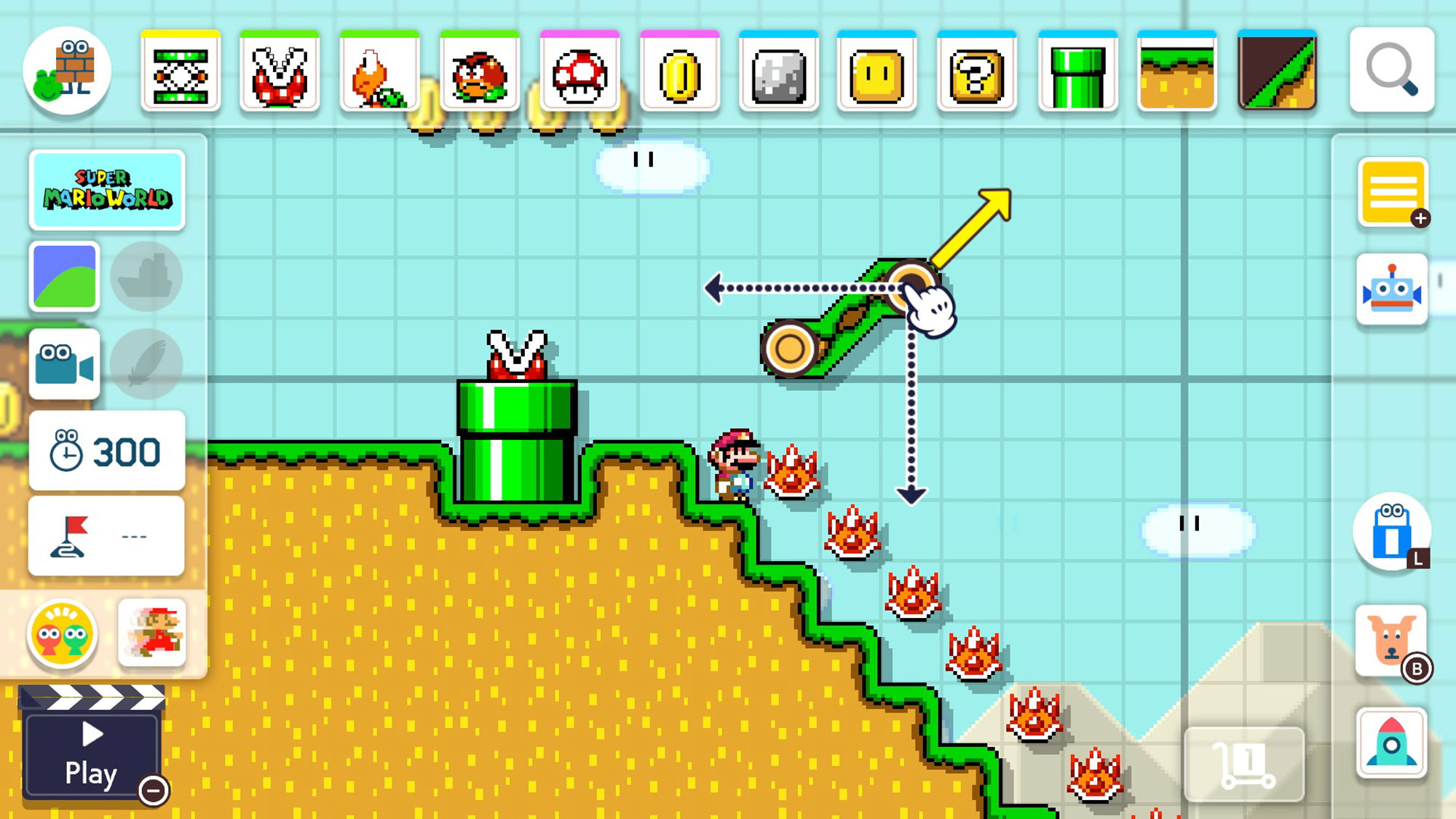
This decade brought us some of the best Mario games of all time in the form of Super Mario Galaxy 2, Super Mario 3D World and Super Mario Odyssey. But while those titles were great, Super Mario Maker was a revolution. This seemingly simple concept — a game in which you create, share and play custom Mario levels — turned into a viral sensation almost overnight, with players gleefully racing to beat the most creative and sadistically difficult levels they could find. The Super Mario Maker livestreaming scene became a hobby within itself, as thousands tuned in to watch Mario pros try to clear the most obscenely hard stages that the internet could invent.
But Mario Maker has more than sheer spectacle going for it; it also contains all of the polish and joy of a true Super Mario title. Building levels is super intuitive for newcomers while leaving plenty of room for more-advanced creators to get really fancy, and the actual platforming — which comes in Super Mario Bros., Super Mario Bros. 3, Super Mario World and New Super Mario Bros. flavors — all feels as tight as a proper Mario game should be. Whereas most Mario games are confined, linear adventures, Super Mario Maker is an always-evolving social experience, one that players are still taking to new heights in Super Mario Maker 2. — Mike Andronico
20. The Elder Scrolls V: Skyrim (2011)
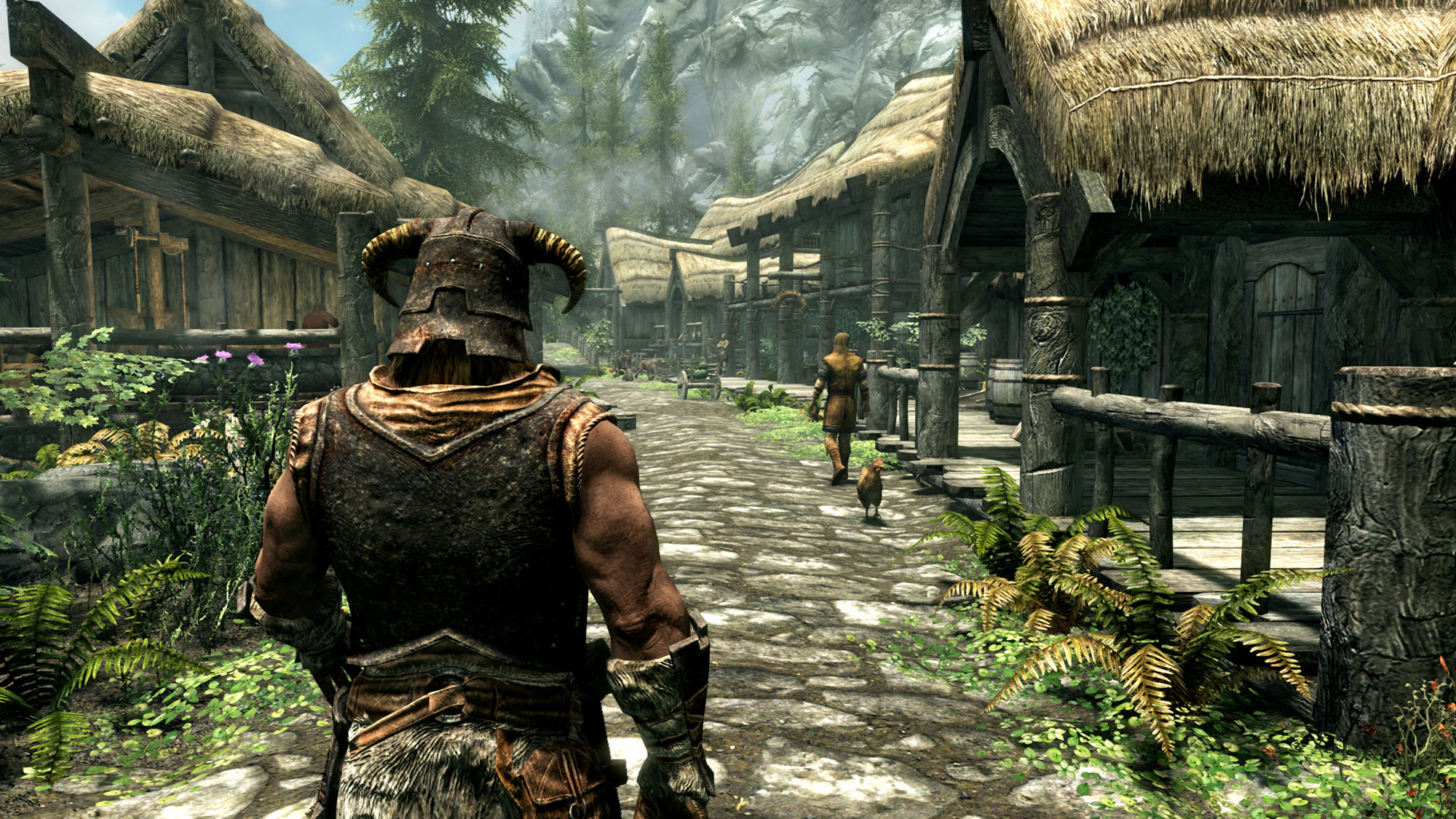
Few single-player games become living, evolving pieces of pop culture the way The Elder Scrolls V: Skyrim has. The game is superb on its own, as Bethesda crafted one of the most vast, dynamic open worlds of all time. In this world, you can follow the plot or simply get lost interacting with the townsfolk and completing endless side quests. With some of the best character customization and player choice in the genre, Skyrim is a true Western RPG classic.
But Skyrim also took on a life of its own beyond the quest of the Dragonborn. Classic lines such as "took an arrow to the knee" became viral memes, and the game's vast selection of user-created mods, which deliver everything from gameplay improvements to a transformation of the dragon into Macho Man Randy Savage, still deliver new ways to play. The fact that Skyrim continues to be ported to new consoles only further cements its legacy; you can play enhanced versions on PS4 and Xbox One, take the game on the go on Switch, and even get fully immersed in it in Skyrim VR. — Mike Andronico
19. Undertale (2016)
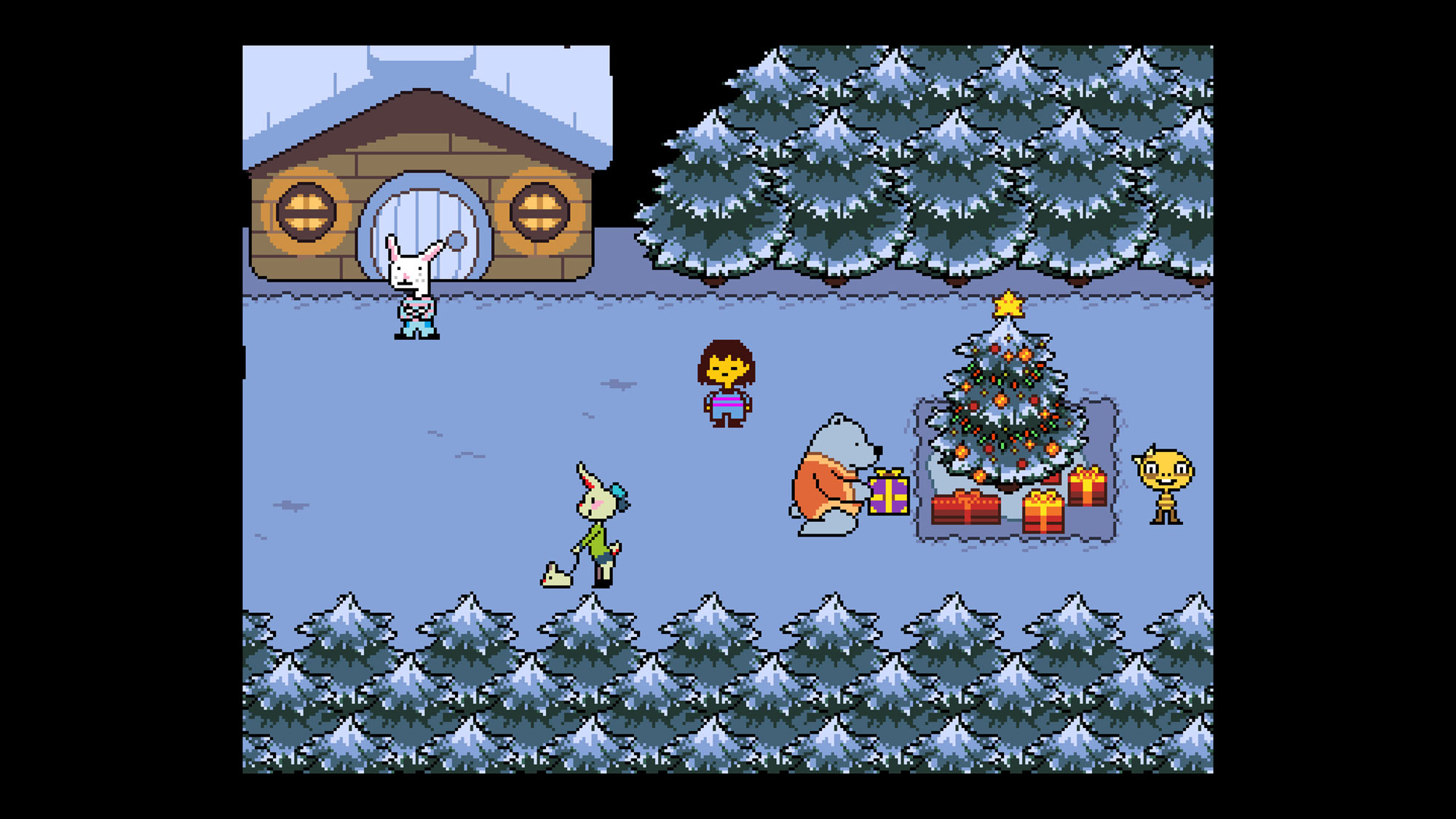
I'm generally not one for RPGs, but Undertale's simultaneously charming and unsettling, fourth wall-shattering story; quirky characters; and stark, grotesque visual style make it an experience gamers of all stripes can enjoy. Toby Fox's masterpiece shattered genre conventions and turned a mirror back at traditional RPGs in much the same way that Earthbound did decades earlier, but with a wit that's somehow edgier yet also just as heartwarming.
In an engaging twist, the whole campaign's only a few hours long but encourages repeated playthroughs, because the ending changes depending on both your actions and how many times you've already completed the game. It helps, too, that Undertale's battle system is unique, the soundtrack absolutely slaps and the game is playable on practically every platform under the sun, from the Switch to the Vita. — Adam Ismail
18. Tetris Effect (2018)
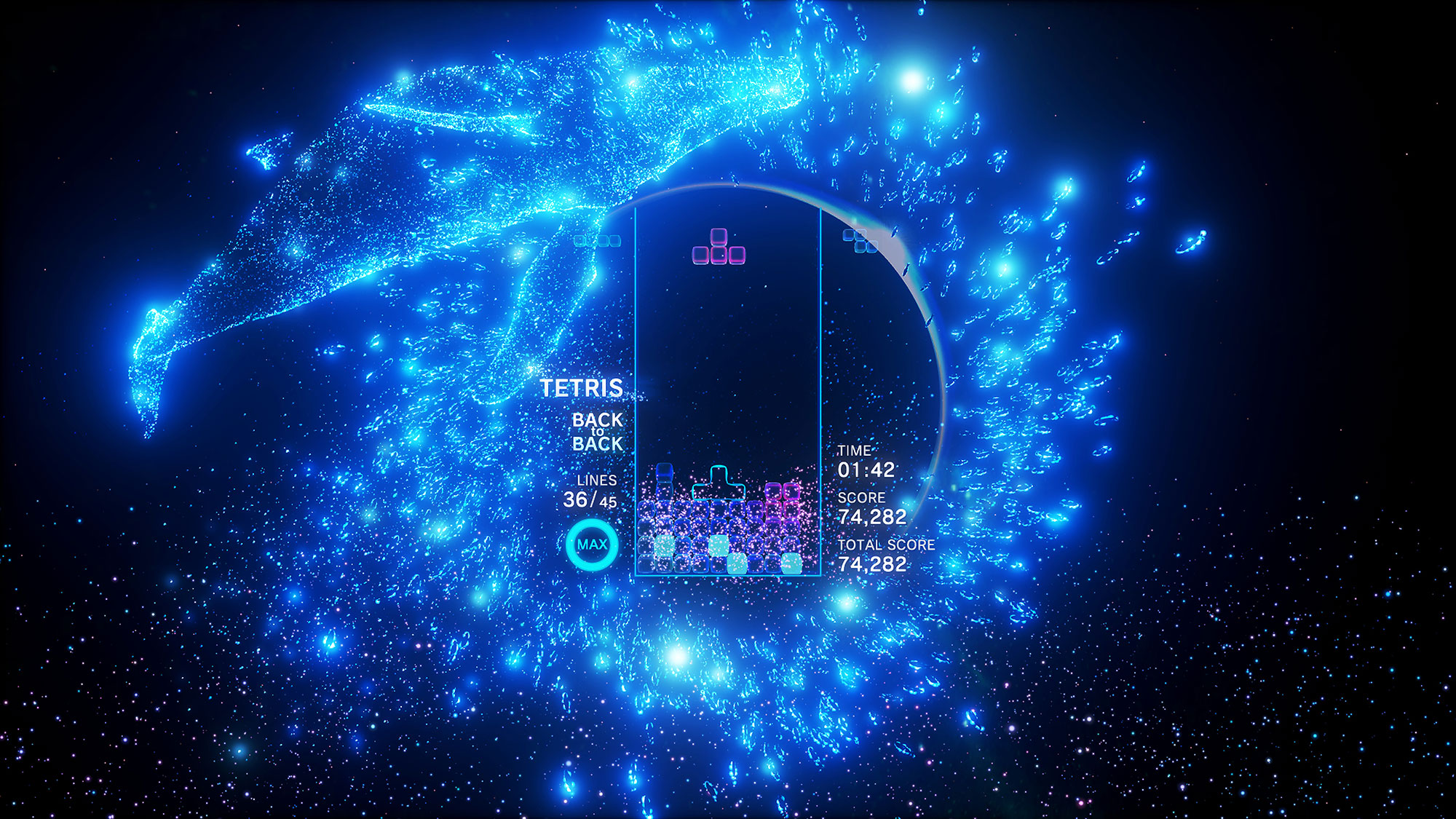
There's no game as timeless as Tetris. And because Alexey Pajitnov's legendary puzzler has been rereleased and remixed again and again over the last three decades, Tetris has had a unique opportunity to stay relevant and appeal to every generation. But no reinvention has ever captured the world's imagination quite like Tetris Effect.
The brainchild of Tetsuya Mizuguchi, whose resume includes Space Channel 5, Rez and Child of Eden, Tetris Effect mashes up psychedelic visuals with a remarkable soundtrack, both of which react in tune with every drop, spin and line clear. The result is a transcendent and synesthetic experience that is challenging to explain in text but that leaves an indelible impression the moment you play it. And if you're fortunate enough to do so in VR, this game's grandeur is all-encompassing. — Adam Ismail
17. Hellblade: Senua's Sacrifice (2016)
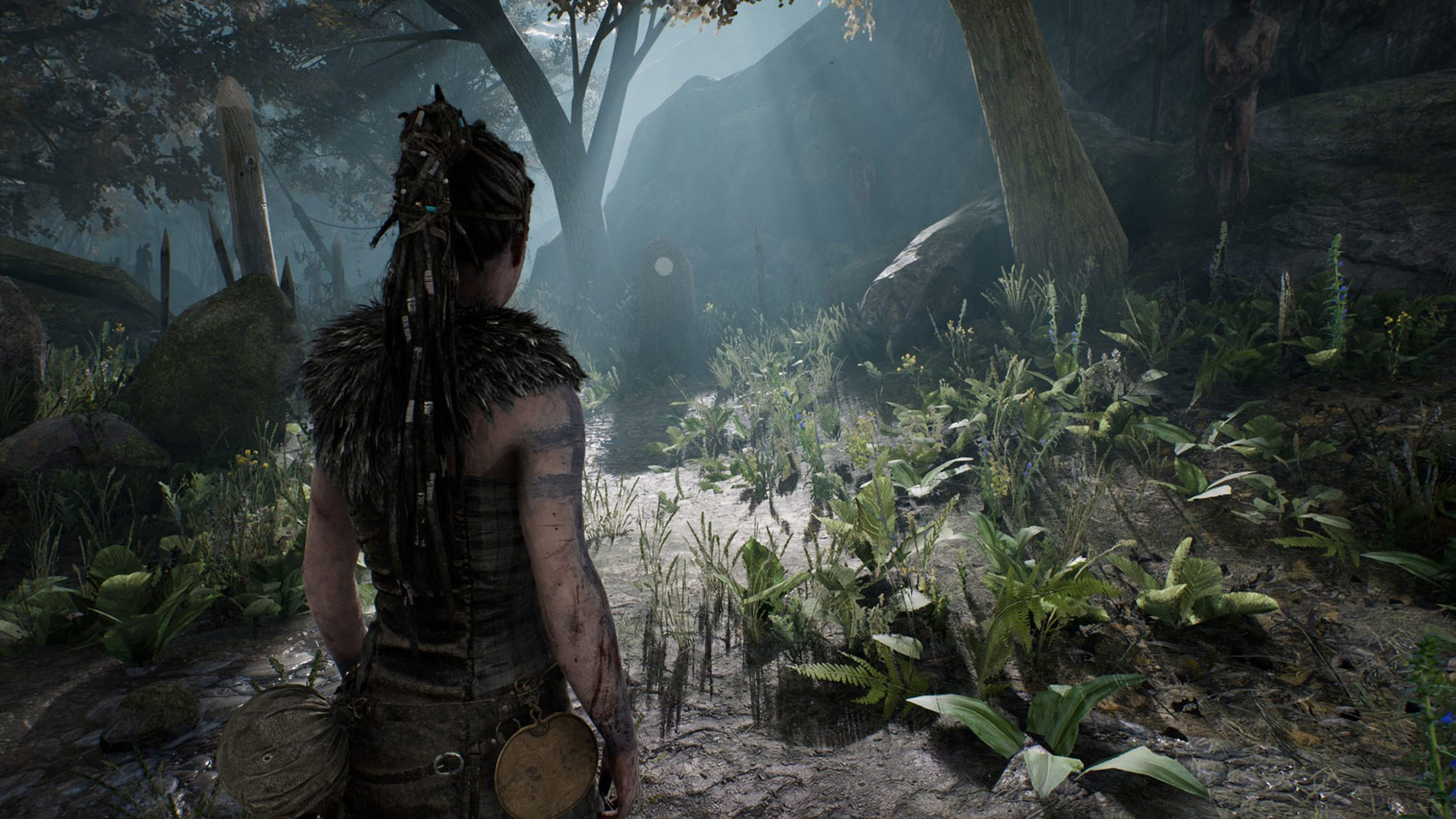
Senua has always been shunned by her ancient Pict society due to the voices she hears in her head. But when the man she loves dies at the hands of a band of Norsemen, she goes on a quest to the far north to convince the Nordic gods to bring her love back to her.
Through this journey to the realm of Helheim, you'll encounter both environmental puzzles and combat, through which you'll be accompanied by Senua's memories of her lover, Dillion; her wise friend Druth; her cruel father; and the Furies. These voices in her head echo around your own headphones too, whispering both helpful information and your worst fears as you progress through the puzzles and fights.
The setting is a particularly grim interpretation of the Norse myths, combined with a moving story about acceptance and fighting impossible odds, along with a well-executed and sensitive depiction of a character living with psychosis. Epic and personal, thrilling and thoughtful, Hellblade fits a lot into its single-player experience, and while you'll enjoy your time playing through the game, the emotional weight of the story will give the empathetic side of your brain as much of a workout as the problem-solving side. — Richard Priday
16. Minecraft (2011)
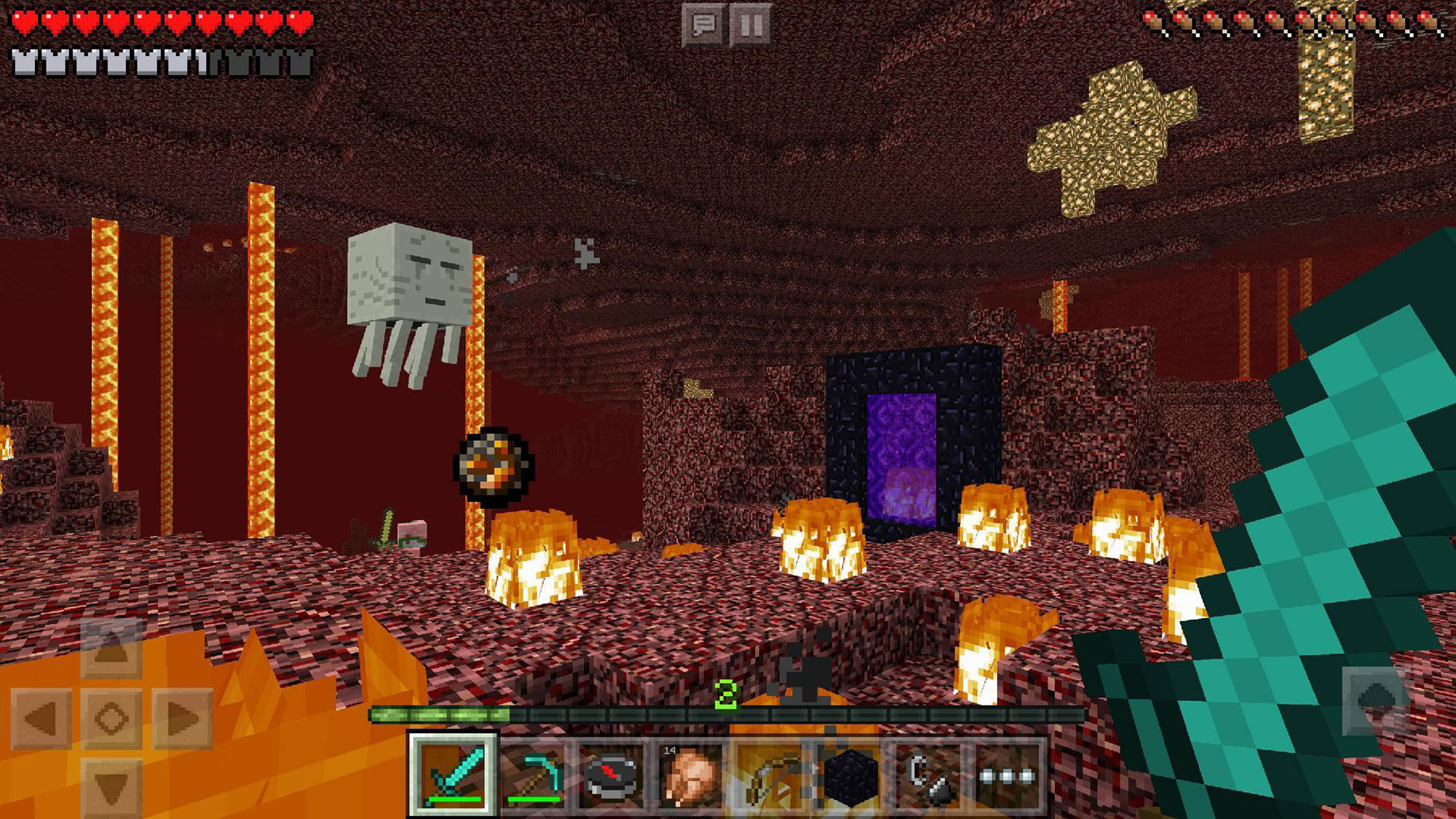
Think back to a time before foam pickaxes and Creeper costumes lined aisles at Target; before the Lego sets and before the callous social media ramblings of a certain Swedish game developer. Think back to the sense of discovery, wonder and creative energy you felt the first time you and your friends built a world together in Minecraft, possibly 10 long years ago at this point.
These days, it's easy to take for granted what Mojang created. The comparison to Lego is often made, but it's an accurate one; much like those building blocks have ignited the imaginations of generations of children, Minecraft has inspired kids and adults alike to create unique worlds and memories all their own. Whether you prefer the challenge of Survival Mode or would rather simply build your vision in free space, Minecraft has universal appeal. It's one of those timeless games, not unlike Tetris, that transcends genres, labels and identities. It can be anything to anyone, and at least to this writer, it's easily the most innovative game of the decade. — Adam Ismail
15. Red Dead Redemption (2010)
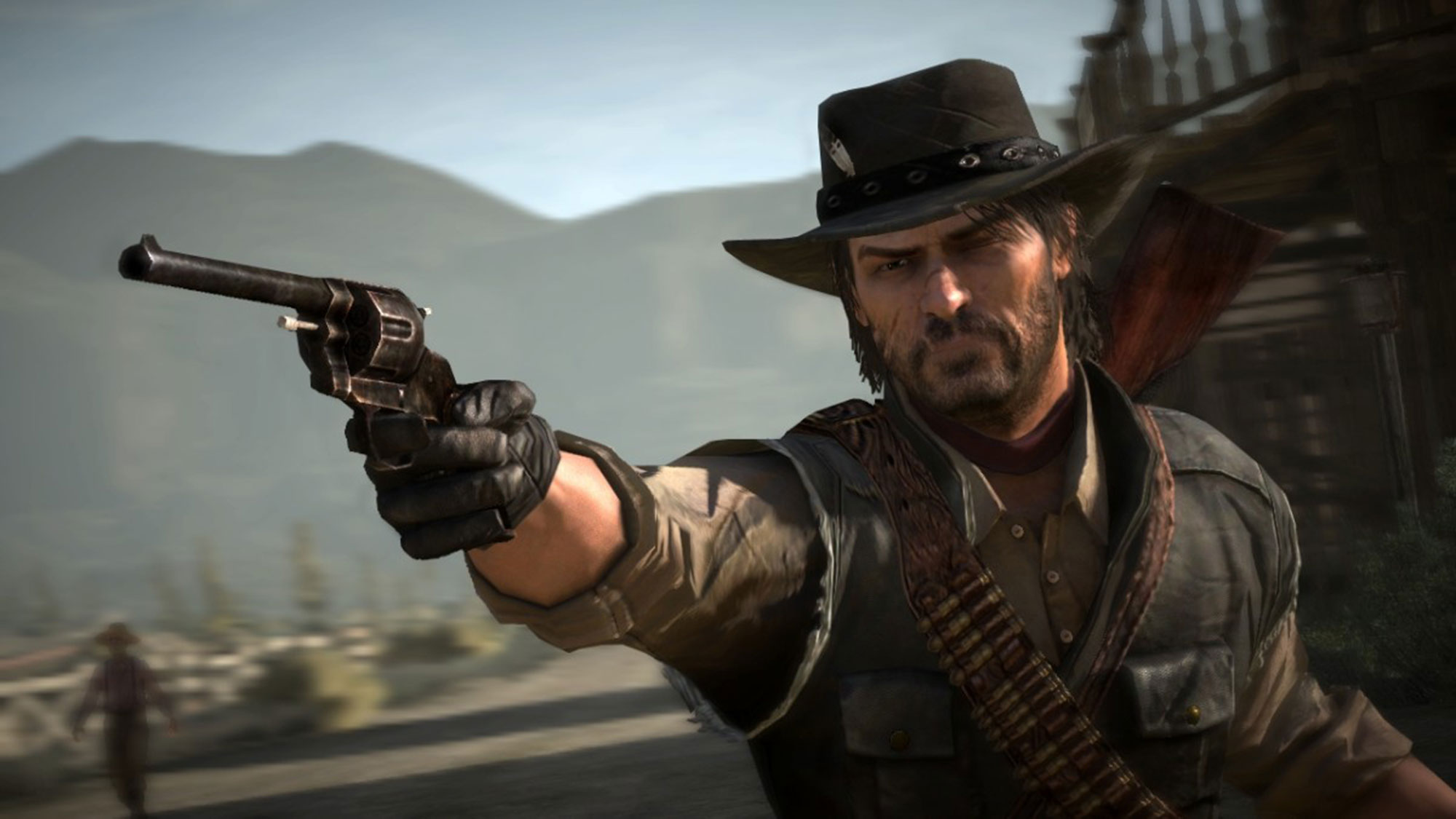
Put GTA in the Wild West, and you get my favorite Rockstar Studios franchise. Red Dead Redemption oozes obsession, self-deception and madness, making it a must-play for those looking for an escape from the real world — and from the 2010s, for that matter.
Red Dead expertly explores a terrain and era grossly overlooked by creators. In fact, 1911 isn't a year you see represented in most modern media, and HBO's Westworld is the only thing that's attempted to fulfill the magnificent, ruthless niche. There was the half-hour Red Dead Redemption: The Man from Blackwater TV special, but fans still wanted more up until Red Dead 2 debuted in 2018.
Red Dead's shooting and missions might not be first-rate, but its story explores how the complicated adoption of early technologies and policies brought down western lifestyle. Whether it's a character frustratingly fussing with a telephone or an offhand comment denouncing the growing government, Red Dead's most subtle details give you so many reasons to keep playing. — Kate Kozuch
14. Overwatch (2016)
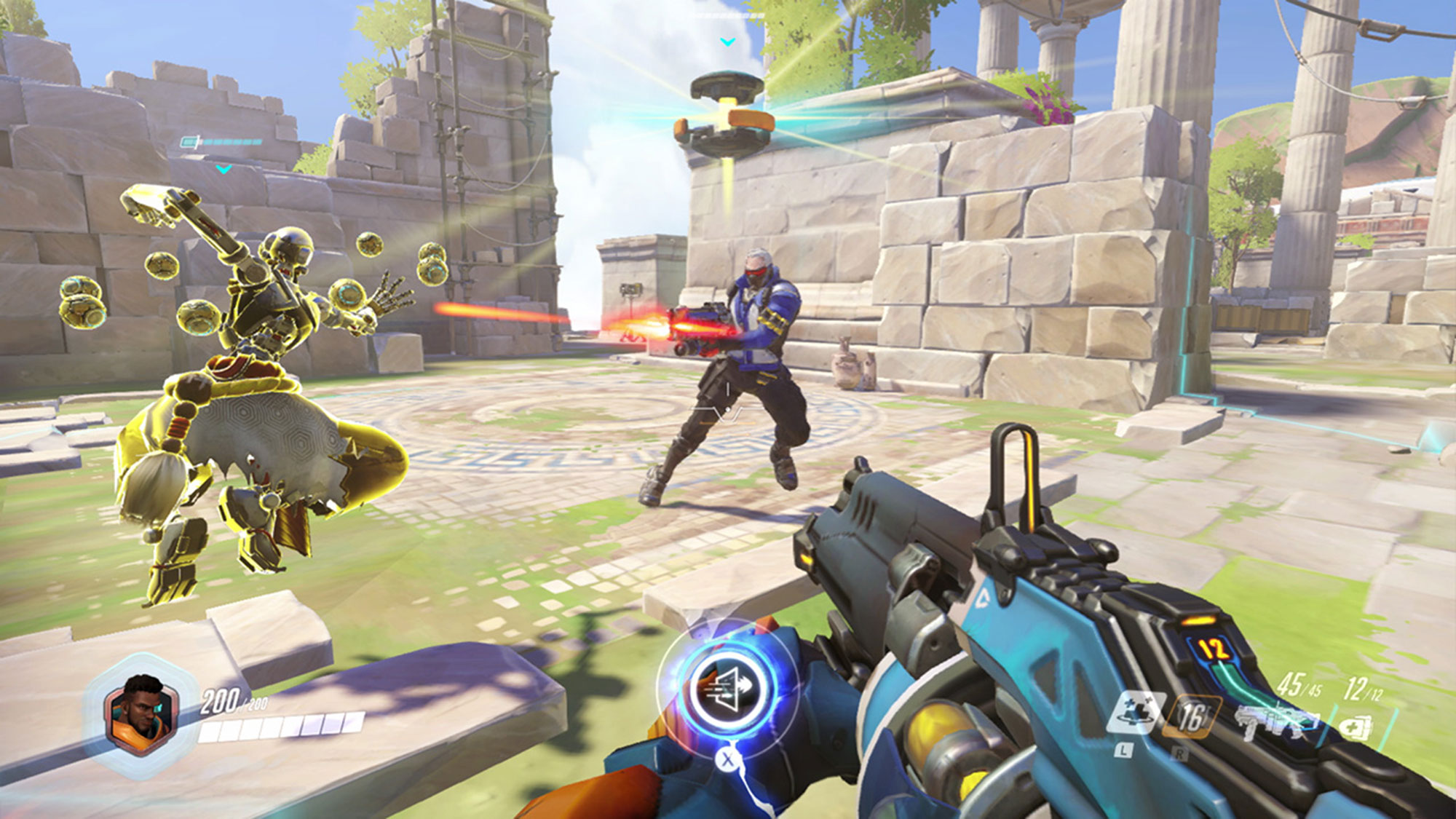
There is so much to love about Overwatch, from the distinct and growing lineup of heroes to the frantic, squad-based first-person-shooter action that bursts with cartoon color. Blizzard's first original IP in nearly two decades, Overwatch masterfully blends white-knuckle first-person shooting mechanics with a level of strategy you could spend years studying. If the six-player competitive mode is too intense, players can choose from a comprehensive and varied list of game modes, each of which heavily awards cooperation.
Overwatch has only gotten better in the years following its release. Blizzard regularly adds new game modes, maps and heroes. There are now 31 heroes (up from 21 at launch), each with their own abilities. While learning their strengths and weaknesses takes time, having so many options means every style of FPS gamer, from precision snipers to close-quarters shotgunners, can enjoy Overwatch. In fact, you don't even have to play Overwatch to appreciate the beautifully crafted, emotive stories that make up the game's compelling lore.
Blizzard secured the long-term success of Overwatch by launching the Overwatch League, the first ever esports league that follows the format of a traditional sports league. Since its inception, the Overwatch League has attracted millions of viewers from around the world and awarded millions of dollars in prize money. The 2020 season will adopt a home/away format in what will be another milestone for esports. The game's influence on the industry can't be overstated. Elements of Overwatch were quickly adopted by various other games, from the game's heroes and their abilities to the way it handles loot boxes. — Phillip Tracy
13. Gone Home (2013)
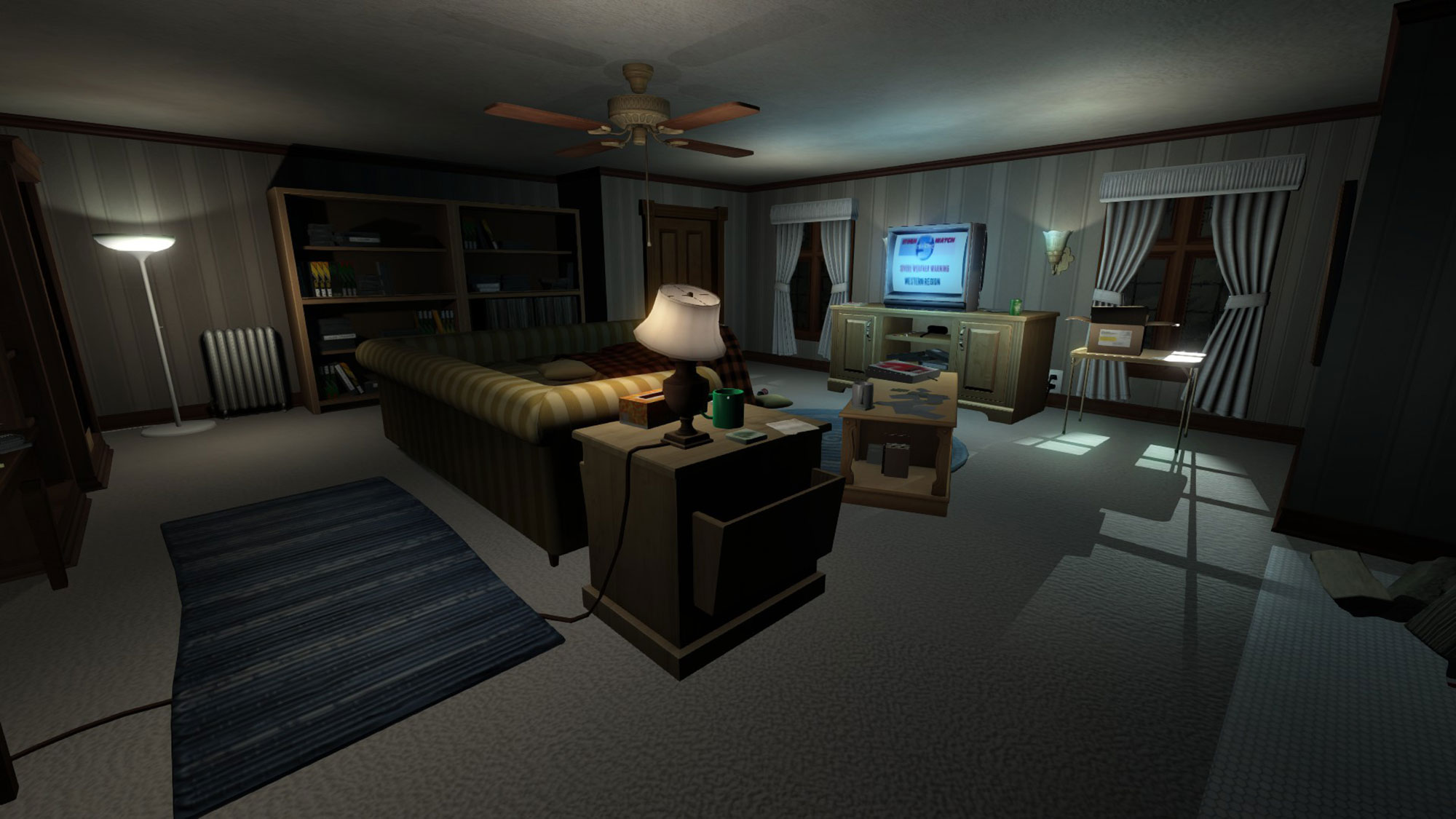
Regardless of where you stand on the walking-simulator debate, Gone Home does an astonishing amount with so little, from a narrative perspective. The conceit of returning to a home in disarray to find your entire family missing sparks questions from the onset. The surreal, unsettling nature of the mansion itself piques your curiosity, driving you to uncover every secret. No, you don't have agency over the story, and you don't physically interact with another character at any point — but discovering how it all ends is enough to sustain anyone hooked by the setup.
What unfolds is a simple love story of sorts, but one that's nonetheless sweet and gripping, peppered with interactive elements and objects that fill in pieces of the puzzle. And the tale these trinkets tell is one criminally underrepresented in gaming. LGBT stories told respectfully and relatably have become more prevalent in the medium in the last five years, and Gone Home paved the way for that. How much time you invest in chasing the side stories and lore is your prerogative, but you likely won't have to be prodded along; every cassette, note and photograph enriches an experience that will leave you touched when it's all over. — Adam Ismail
12. Bloodborne (2015)
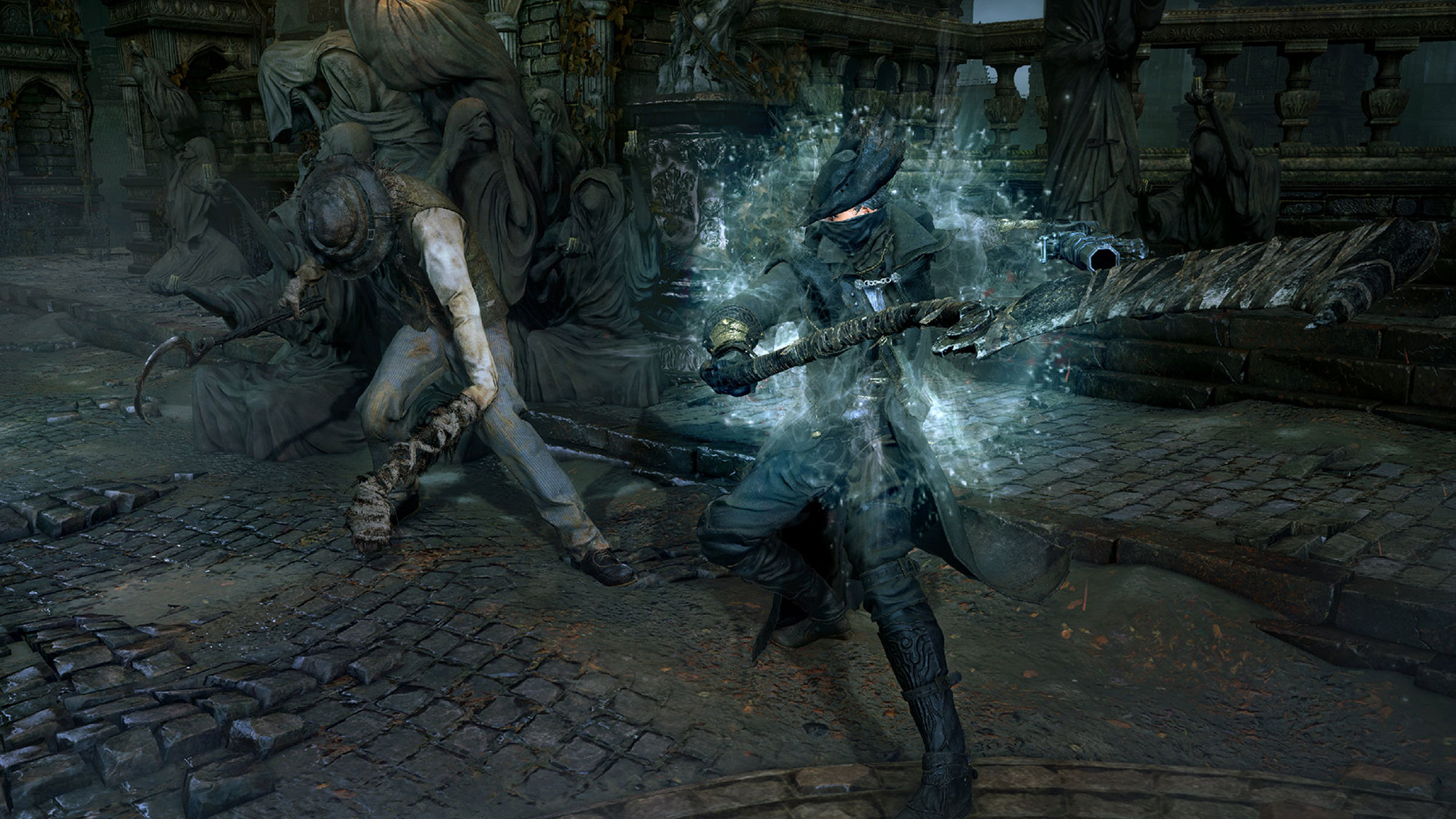
The Tom's Guide staff went back and forth on Bloodborne. We knew that we wanted to have a FromSoftware game on the list, but wasn't Dark Souls the more logical choice? Dark Souls codified a whole "tough-but-fair" design philosophy, in which players die often but make incremental progress each time, appreciating their hard-won progress all the more when they finally triumph.
While Dark Souls is an excellent game, it's also extremely similar to 2009's Demon's Souls. Bloodborne, on the other hand, is very much its own thing. Instead of occupying a dark fantasy world, Bloodborne takes place in a Victorian/Gothic hybrid nightmare called Yharnam. You play as a Hunter, who cannot die — at least until he or she has slain the chthonic horrors that lurk in every eerie graveyard, decrepit cathedral and eldritch dungeon in the city.
Bloodborne shares a lot of design philosophies with Dark Souls, including carefully hidden traps around every corner, an explorable world that fits together in odd ways, huge enemies that require patience to defeat, and the ability to call on other players for hints or assistance during boss fights. But Bloodborne is also a much faster game. Instead of a shield, you'll wield a gun that can stagger enemies; instead of finding safe spots to heal, you can recover your health by counterattacking an enemy right after they hit you. Bloodborne is a fast and intense experience, but also a strategic and thoughtful one.
From the atmosphere, to the gameplay, to the opaque, macabre narrative, Bloodborne is unlike any other game we've played in the past 10 years. And while we hope to revisit Yharnam someday, if we don't, this game is good enough to stand on its own for a long time to come. — Marshall Honorof
11. Cuphead (2017)
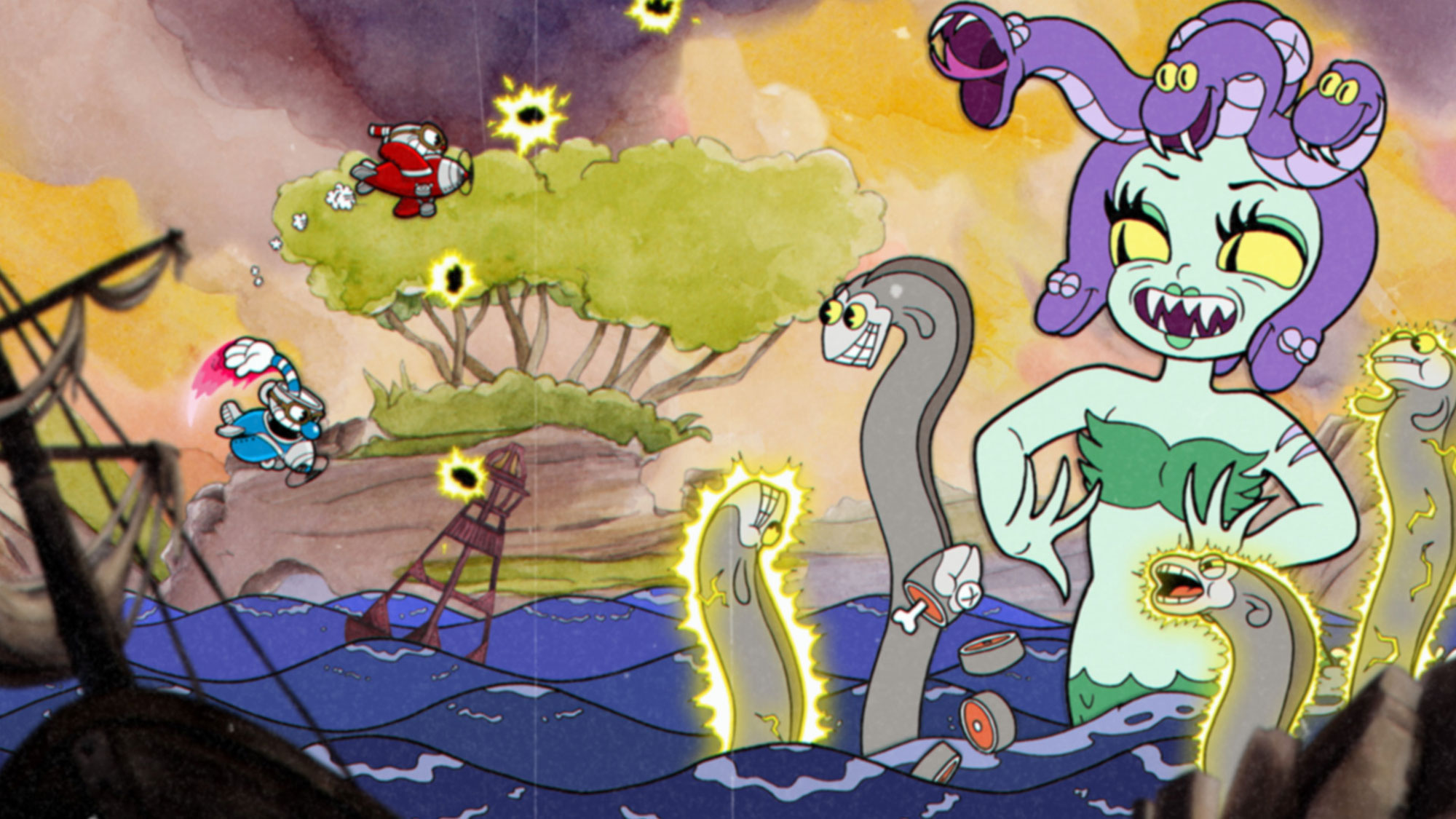
Don't deal with the devil, especially if you're an anthropomorphic being with a cup or a mug for a head. Cuphead is a love letter to 1930s animation; the upbeat rhythms of jazz, swing and ragtime; and side-scrolling shoot-'em-ups like Contra and Mega Man. The game's animations, painstakingly drawn by hand by the StudioMDHR team, are heavily influenced by the early works of Disney and Max Fleischer and look like nothing else on the market. Coupled with the music, Cuphead's gameplay makes me feel like I'm playing through Steamboat Willie or a wild Betty Boop adventure.
But beyond its delightful, cutesy veneer, Cuphead is a seriously challenging game that will test the limits of your patience. Using all the available weapons in your arsenal — jumping, parrying, shooting and whatever special abilities you've purchased along the way — your task is simple: collect the soul contracts of wayward debtors in exchange for your own. But the task is easier said than done. The bosses are massive, with a ton of tricks up their sleeves. It's a war of attrition: you trying your best to whittle the boss's health without any clear signs of how close or how far you are from a KO and the boss doing their absolute best to frustrate, annoy and crush your efforts. Spoiler alert: You die a lot in this game.
However, once you've gotten the pattern down pat, mastered parrying and hit the right shots, the feeling of euphoria you get when you finally take down that boss is incredible. Cuphead is hard, but with patience, skill and a little luck, it's far from impossible. — Sherri L. Smith
10. BioShock Infinite (2013)
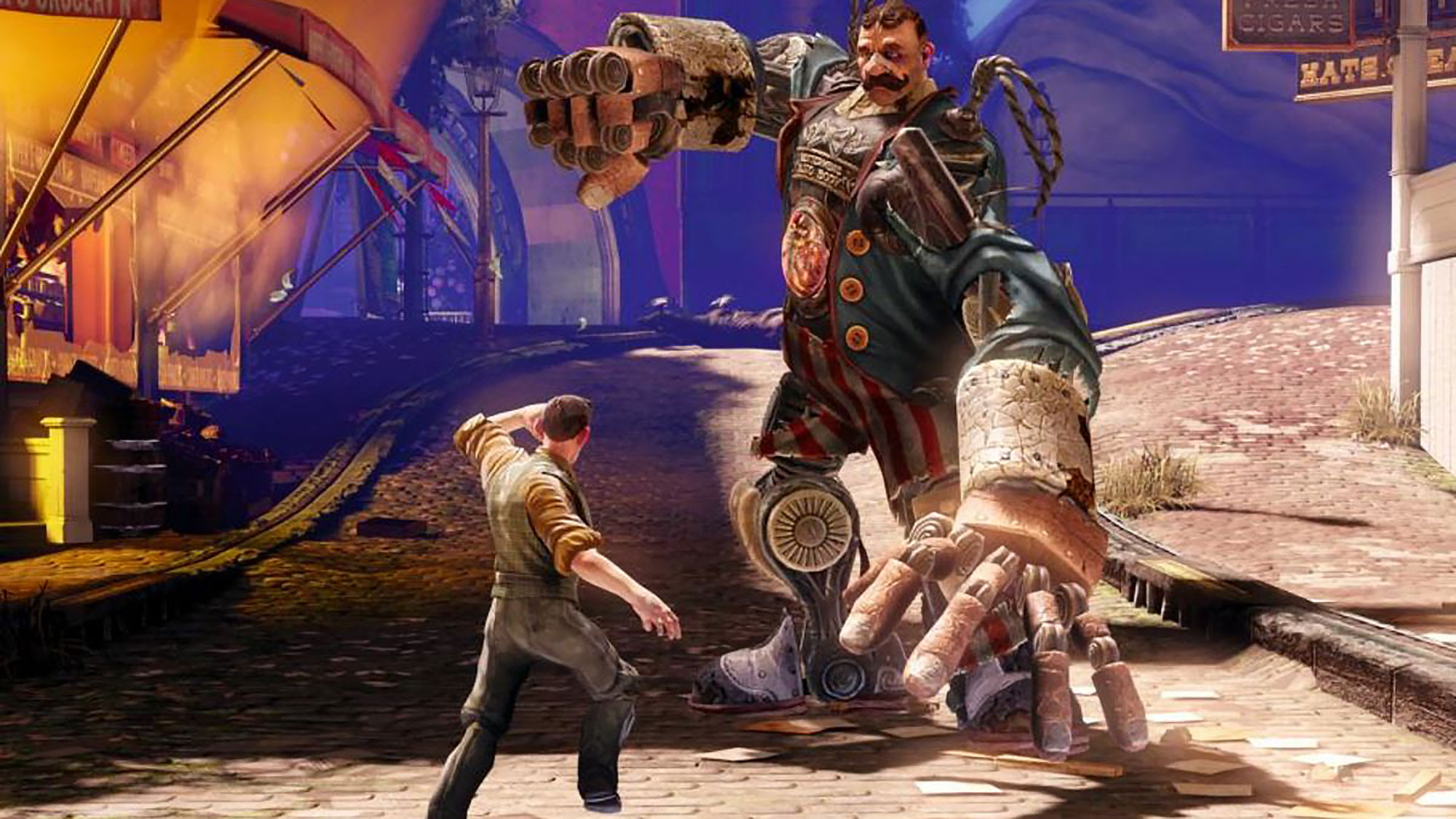
Love or hate BioShock Infinite, there's a reason why gamers are still talking about it six years after it arrived. This gorgeous first-person shooter takes place in 1912, in the fictional floating city of Columbia. Here, a self-appointed prophet named Zachary Hale Comstock has taken American exceptionalism to a dangerous extreme, believing that Manifest Destiny excuses the jingoism, classism, racism and even genocide integral to the country's history.
To this end, Comstock has trapped a young woman named Elizabeth, who can control the fabric of space-time itself, to keep Columbia afloat and Comstock in power. Protagonist Booker DeWitt needs to track down Elizabeth to pay off a gambling debt, and when the three characters meet, both ideological and physical battles come to an explosive head.
BioShock Infinite has great gameplay, as Columbia is a gorgeous city to explore, replete with plenty of upgrades to find, characters to meet and enemies to fight. (Mowing down mechanized, machine-gun-wielding George Washingtons inspires an appropriate mix of exhilaration and shame.) But what's amazing about BioShock Infinite is that it's a huge, sprawling game with a lot to say. Elizabeth is one of gaming's most endearing characters, mixing wide-eyed optimism with incredible reality-shaping powers. (And yes, she helps in combat, too.) Columbia holds beloved American institutions up to a dark mirror. And in what is still the game's most controversial plot point, it contends that the underclass would not necessarily wield power any better than the elite.
Games are often content to just be fun. And that's fine; there's nothing wrong with spectacle for spectacle's sake. But BioShock Infinite shows that games can ask tough questions without sacrificing traditional gameplay: a feat often imitated, but rarely realized. — Marshall Honorof
9. Uncharted 4: A Thief's End (2016)
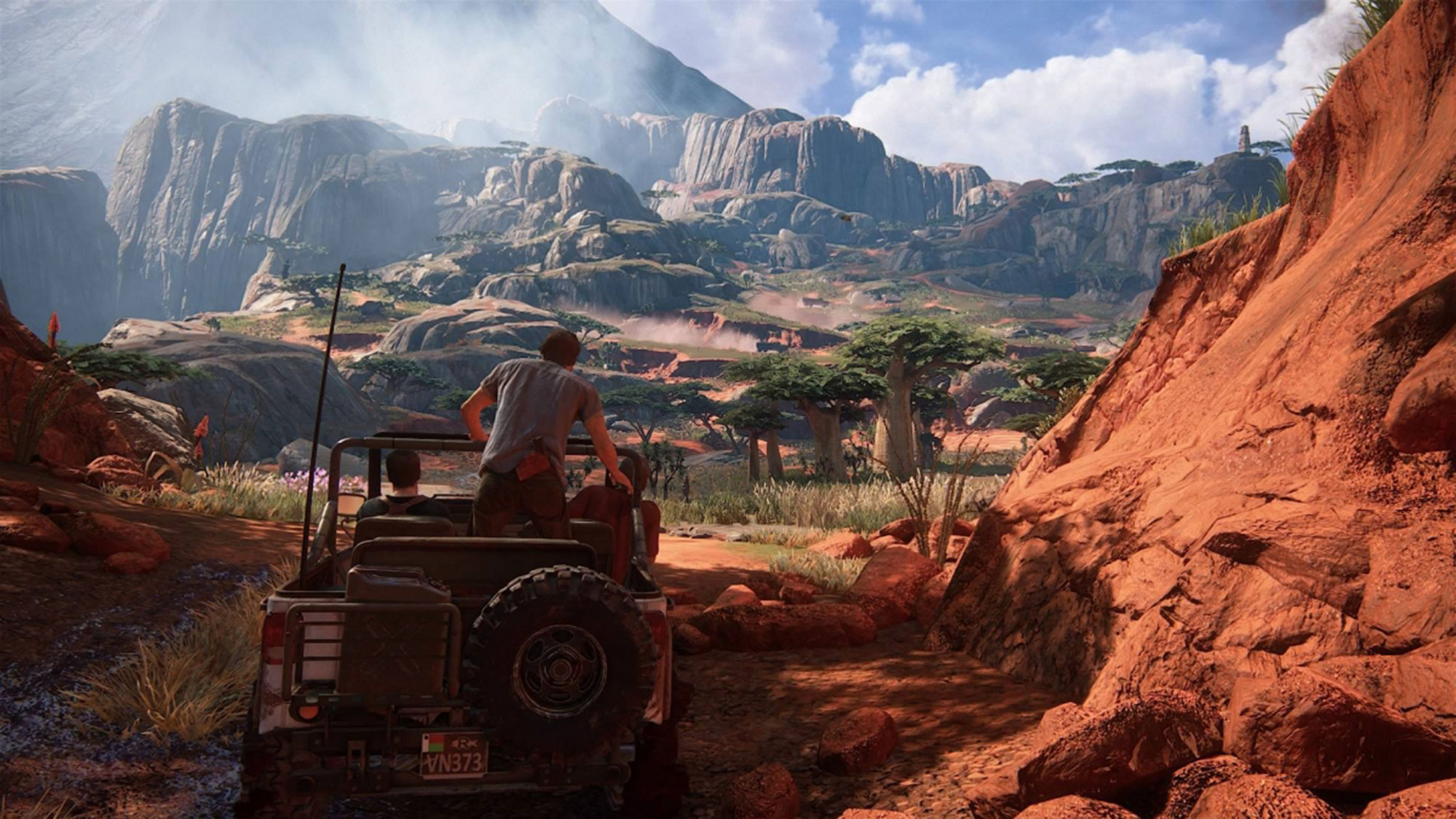
Uncharted 4: A Thief's End wraps up one of the best third-person-shooter franchises of all time. Our swashbuckling hero, Nathan Drake, is pulled out of retirement to go on one last job to save his long-lost brother. Uncharted 4 is a pivotal moment in the series, not only due to its improvements on gunplay and the addition of the badass grappling hook, but also because it delivers on all of the emotional moments we've been waiting for since the franchise began.
It was so nice to see the characters struggle through believable relationship issues instead of just filling the air with more gunshots and explosions. Thanks to those moments, every explosion and collapsing building felt that much more life-threatening, keeping us on the edge of our seats. At the end of Uncharted 4, we get an incredibly intense and memorable boss fight, and right after that comes one of the best endings to a franchise that I've ever seen. If you haven't played the Uncharted series, do it. If you have and just happened to miss out on Uncharted 4, play it right now. (I'm looking at you, Phillip Tracy.) — Rami Tabari
8. Resident Evil 7 (2017)
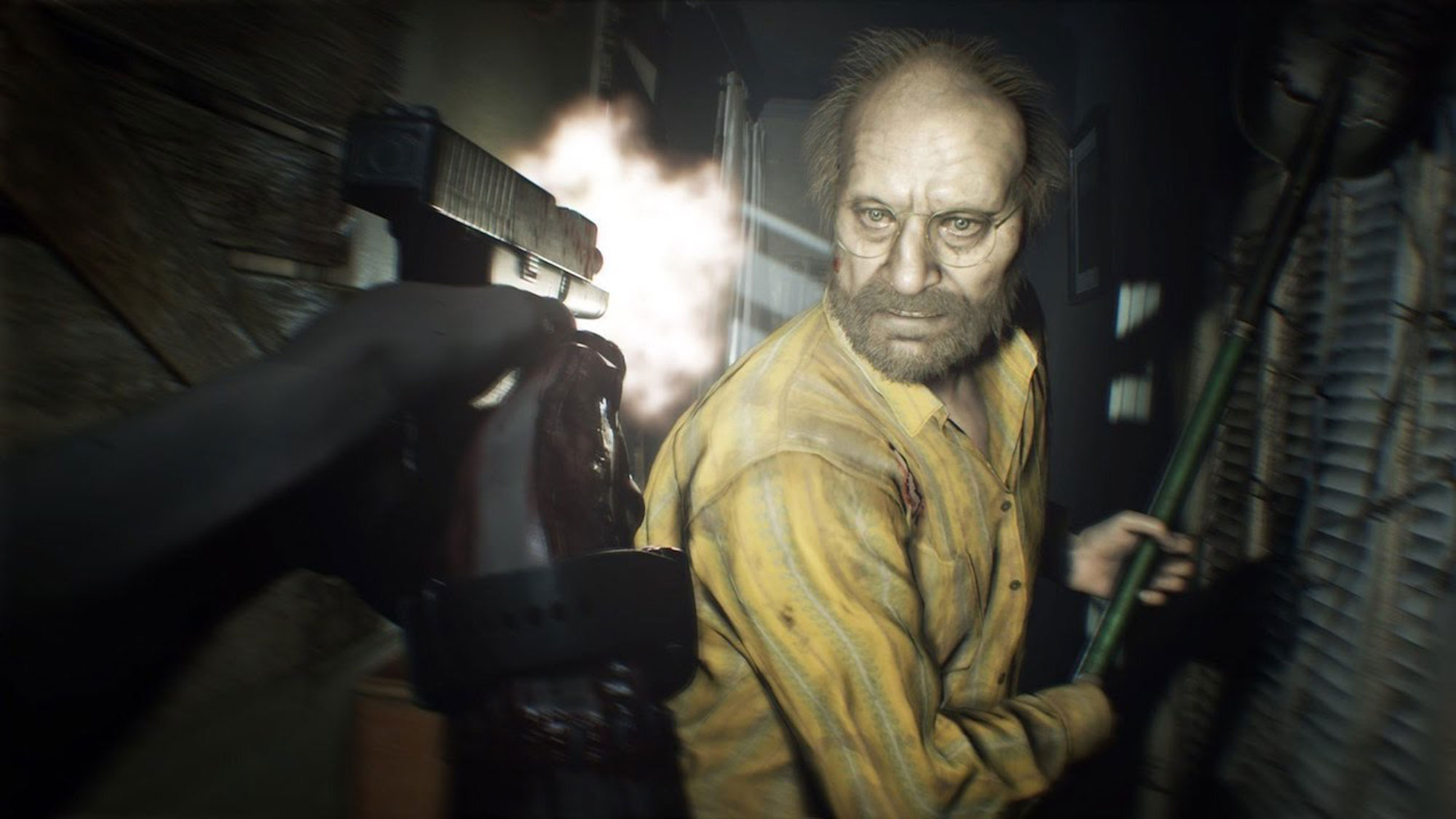
The Resident Evil franchise had become nearly unrecognizable by 2012's Resident Evil 6, which ditched any pretense of horror in favor of a Michael Bay-inspired third-person action fest. Fortunately, Resident Evil 7 came along in 2017 to not only bring the series back to its survival horror roots, but also push it in exciting new directions.
Resident Evil 7 thrusts you into a hauntingly decrepit Louisiana swamp house, where you're forced to hide from, fight and survive the sadistic and deranged Baker family. And while the game's nearly all-new cast and first-person gameplay are fresh, nearly everything else about RE7 plays out like the original. You'll solve environmental puzzles, ration ammo and healing supplies during tense gunfights, and discover clues and keys that let you further explore and unravel the mysteries behind the Baker home.
Thanks to the game's photorealistic RE Engine and a litany of modern horror influences that include The Ring, Saw and The Texas Chain Saw Massacre, Resident Evil 7 delivers some of the most unsettling scares in series history. It was the modernized but reverent shot in the arm that Resident Evil so desperately needed, and it established a terrifying new formula that was built upon in the stellar Resident Evil 2 remake and upcoming Resident Evil 3. — Mike Andronico
7. Portal 2 (2011)
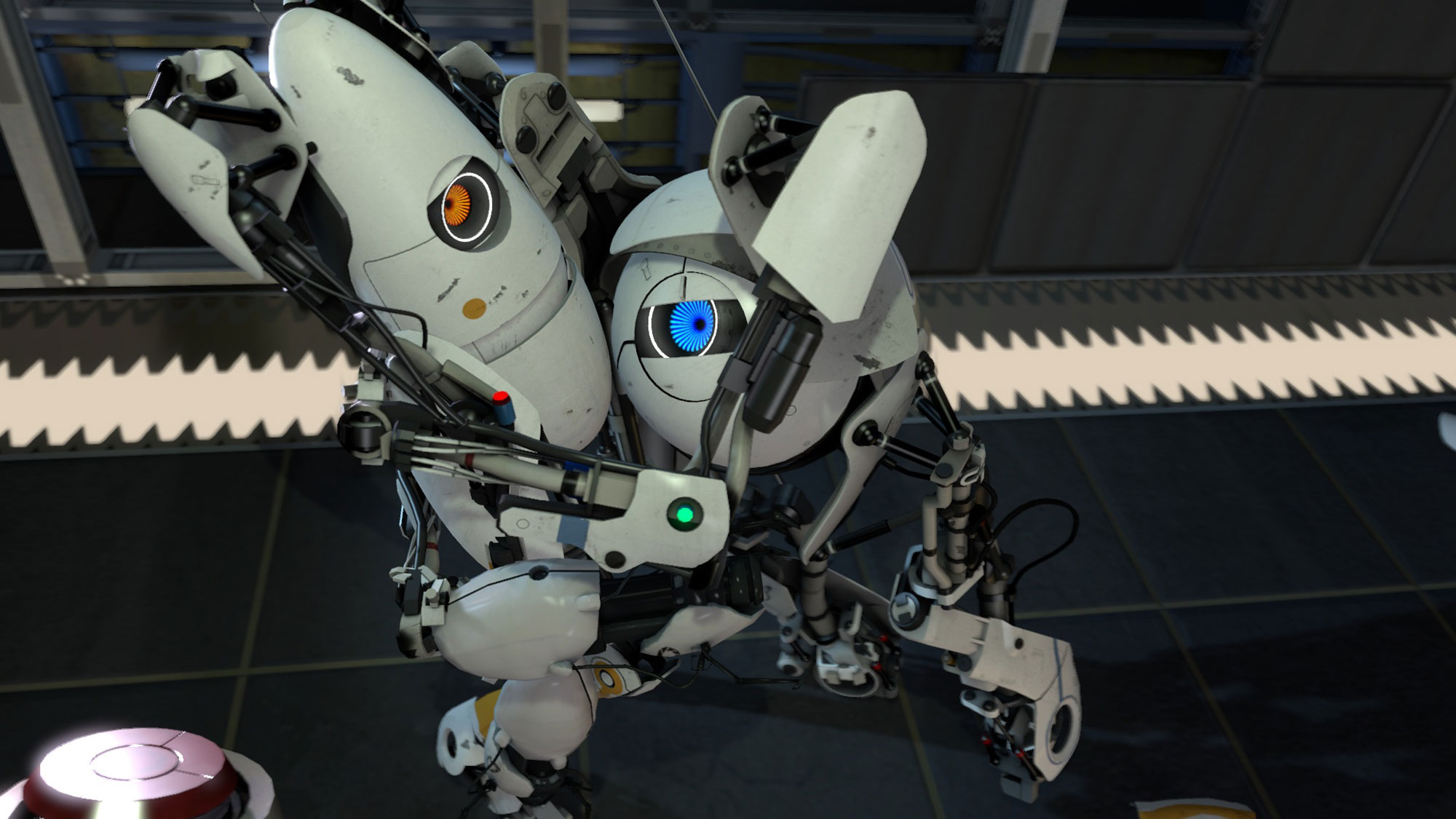
If we had to recommend one game from the last decade to a stranger, it would be Portal 2. Accessible to both veterans and nongamers alike, Portal 2 is a brilliant strategy game that will push your brain to its breaking point with ingeniously crafted spatial-reasoning puzzles.
The story follows the events of the original Portal and finds Chell waking in the iconic but now-crumbling Aperture Science Enrichment Center. Wheatly, a witty robot voiced by funnyman Stephen Merchant, guides Chell through the facility until the evil, yet gut-bustingly hilarious GLaDOS awakens from its slumber. You're then tasked to escape test chambers using a portal gun to teleport yourself and various objects — tractor beams, lazers, cubes, light bridges and pain gels — across the room.
The impeccably polished and addicting single-player campaign will push your every brain cell, but it's the cooperative mode that makes Portal 2 a worthy sequel to its legendary predecessor. What makes the co-op so fun (and even more complicated than the single player) is that each player carries their own gun, so you need to properly place all four portals in order to escape a room. Given the title's relentless difficulty, finishing a puzzle in Portal 2 is as rewarding as any video game achievement. However, I admit to cracking up when my teammate's robot slammed against a wall and shattered into a million pieces.
With the titles' movie-quality story, lovable characters, and sophisticated and inventive gameplay, it's no wonder Portal 2 is a top-10 game of the decade and considered by many, myself included, as the best strategy game of all time. — Phillip Tracy
6. The Witcher 3: Wild Hunt (2015)
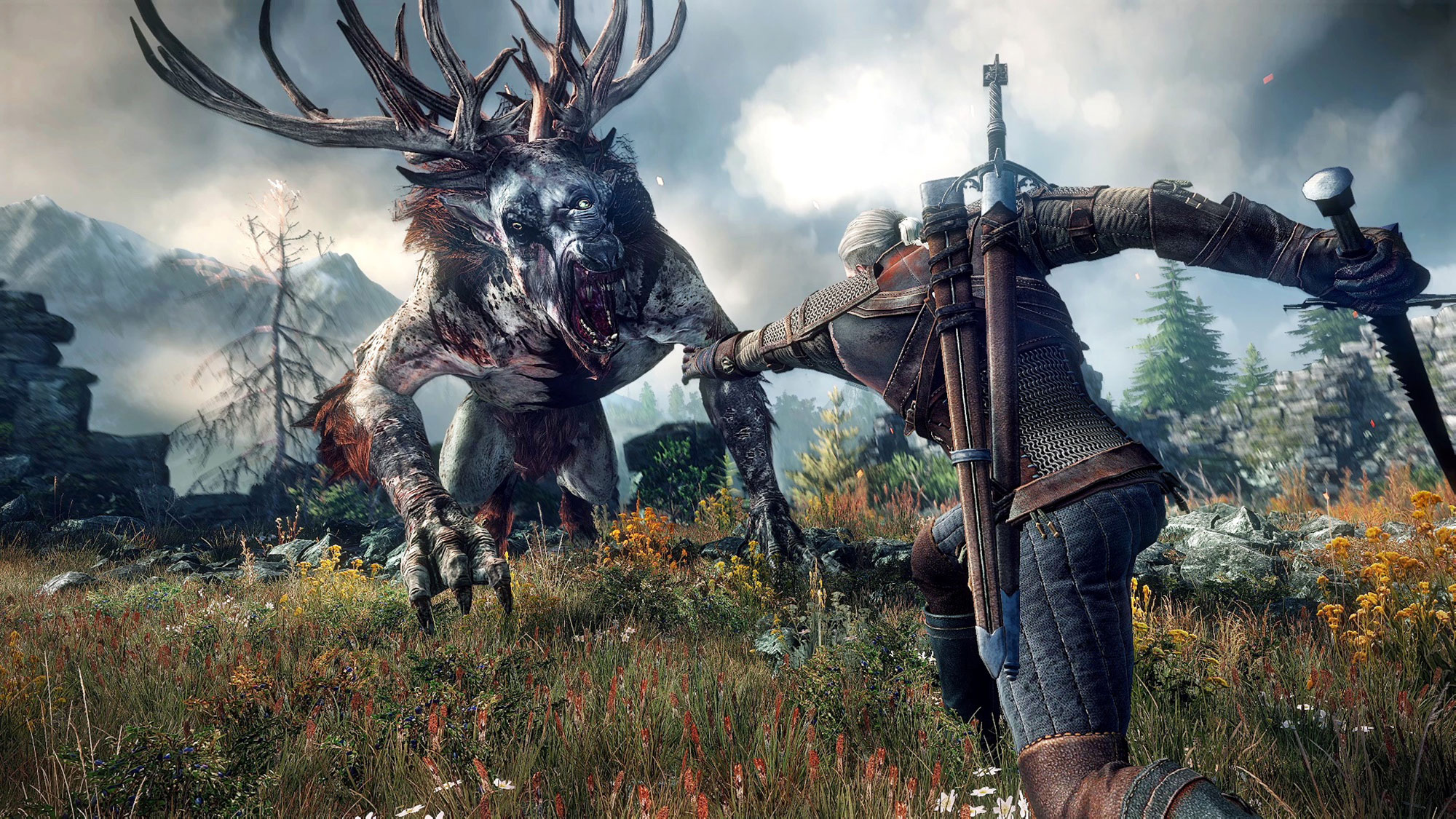
From its cheeky opening sequence with our titular hero in a tub to the infamous stuffed unicorn, The Witcher 3: Wild Hunt sits in the minds of many fans of the series as the best game of the bunch. And they're right. The last entry in a story that took eight years to tell sees Geralt of Rivia trying to track down his adoptive daughter, Ciri, help her save the world and tie up a host of loose ends from the previous two series entries.
That stated, there's so much to love about Witcher 3, starting with the world. It's massive and filled with gorgeous set pieces and breathtaking flora and fauna. I'm not ashamed to say I let out a small gasp of wonder the first time I saw a leshen or a wyvern. I explored every part of Witcher III, even the far-flung islands off the coast of Skellige. But as pretty as the world of Witcher III is, the best part is that the environment feels lived in. The towns are lively, robust and raucous. And areas that have been long abandoned still have a story to tell.
The combat is the best the series has to offer, and I loved switching among swordplay, spells, potions and grenades. About to take on a pack of werewolves? Make sure your silver sword has been treated with with Cursed Oil and make sure you have a few Moon Dust bombs to lob at the beasts. But the best part of Witcher 3 hands down is the story. Depending on the choices made from the previous games, certain characters may be there to hinder or help you on your quest to find Ciri. And the choices you make throughout Witcher 3 will ultimately decide Ciri's fate. Will she run off to become a Witcher, rise to empress or even survive her biggest battle? It's all up to you. And there's the one burning question on everyone's mind: Do you choose Yennefer or Triss?
I've enjoyed my time playing Witcher 3, but it's a bittersweet feeling knowing that this is probably the last I'll see off the ashen-haired mutant with a heart of gold for a while. Thanks for the memories, Geralt. — Sherri L. Smith
5. Super Smash Bros. Ultimate (2018)
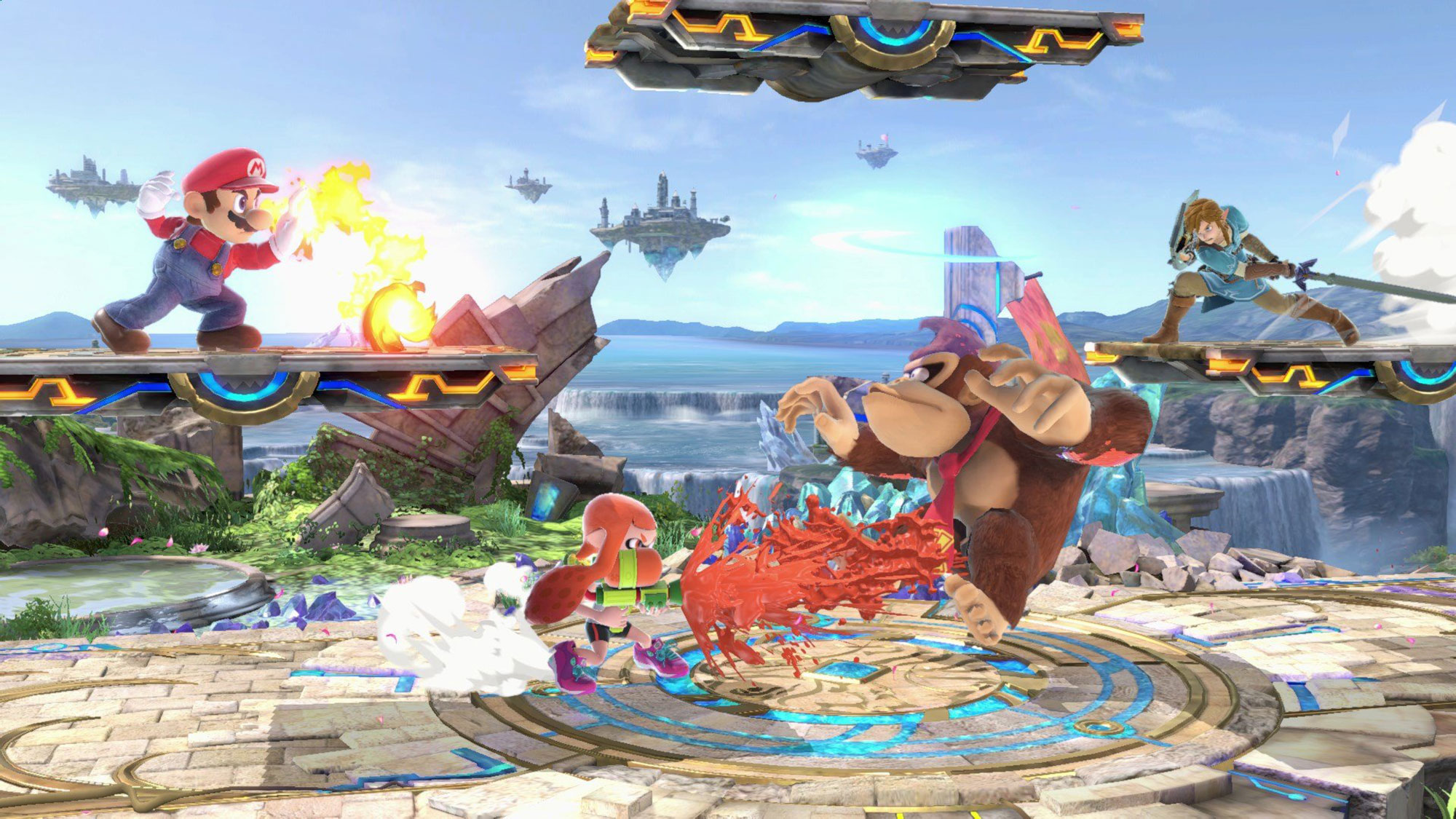
Super Smash Bros. Ultimate isn't just one of the best fighting games of all time; it's also a celebration of video games as a whole. Ultimate's massive, 74-character roster (which is still growing) reads like a history of the medium, with Nintendo staples like Mario, Pikachu and Link able to duke it out with guest stars such as Metal Gear Solid's Snake, Final Fantasy's Cloud Strife and Street Fighter's Ryu. There's simply no other video game that lets Sonic beat up Mega Man in Dracula's lair from Castlevania.
But even if you strip away the fan service, Smash Ultimate is simply a superb fighting game. The frantic, platform-based combat is as fluid and crisp as ever, whether you're playing 1-on-1 competitive matches or having raucous eight-player free-for-alls with Pokeballs, hammers and swords in the mix. Factor in a robust World of Light campaign mode and a bevy of collectible and customizable Spirit characters from Nintendo franchises and beyond, and you have what just might be the most fun, feature-complete fighter ever. — Mike Andronico
4. The Last of Us (2013)
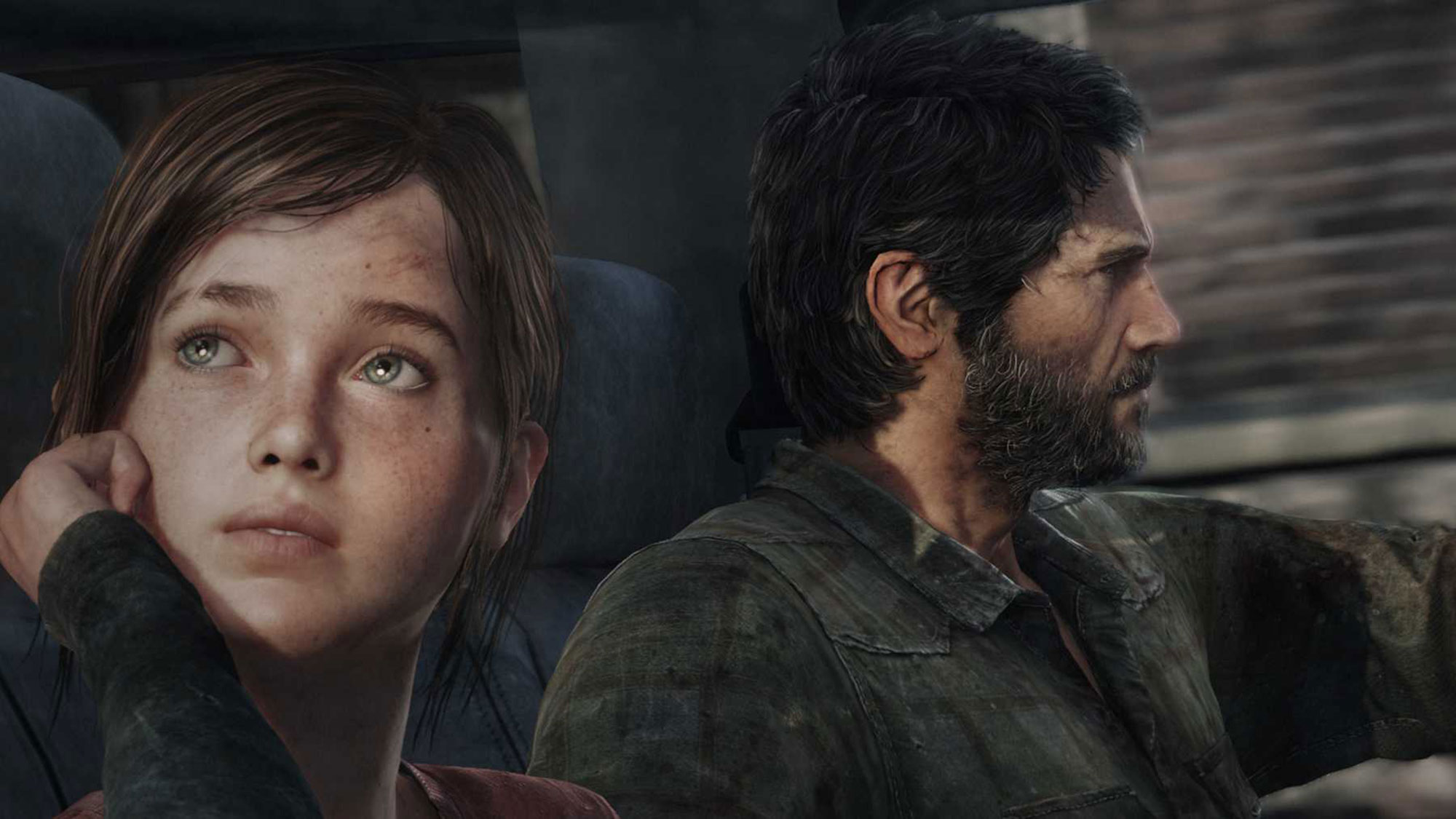
After Naughty Dog took a break from the exuberant Uncharted series, the studio's next project would leave players stunned in a whole new way.
At the beginning of The Last of Us, a mind-controlling fungus has brought humanity to its knees. You take control of the gruff survivor Joel, who is responsible for taking care of the young Ellie, a girl with great importance to one of the post-apocalyptic USA's most important factions. The two of you travel across the country, encountering fungal zombies and fellow survivors both friendly and hostile. The uncomfortably tense atmosphere is complemented by the gameplay, where your supplies of weapons and ammo are very limited and crafting an improvised explosive or shiv takes precious time that your adversaries can use to overwhelm you.
The story will dominate your memories of the game, however. Joel and Ellie's relationship evolves through the different levels of the game, telling us a meaningful story about trying to help people in a world where assisting another or agreeing to be assisted could be a fatal mistake. You'll also see how Joel's past echoes in his present task of defending Ellie from the Infected and bandits. It's a tale worth listening to, and combined with some compelling survival gameplay, it helps keep you focussed and the narrative moving, making a game well worth your time. — Richard Priday
3. Mass Effect 2 (2010)
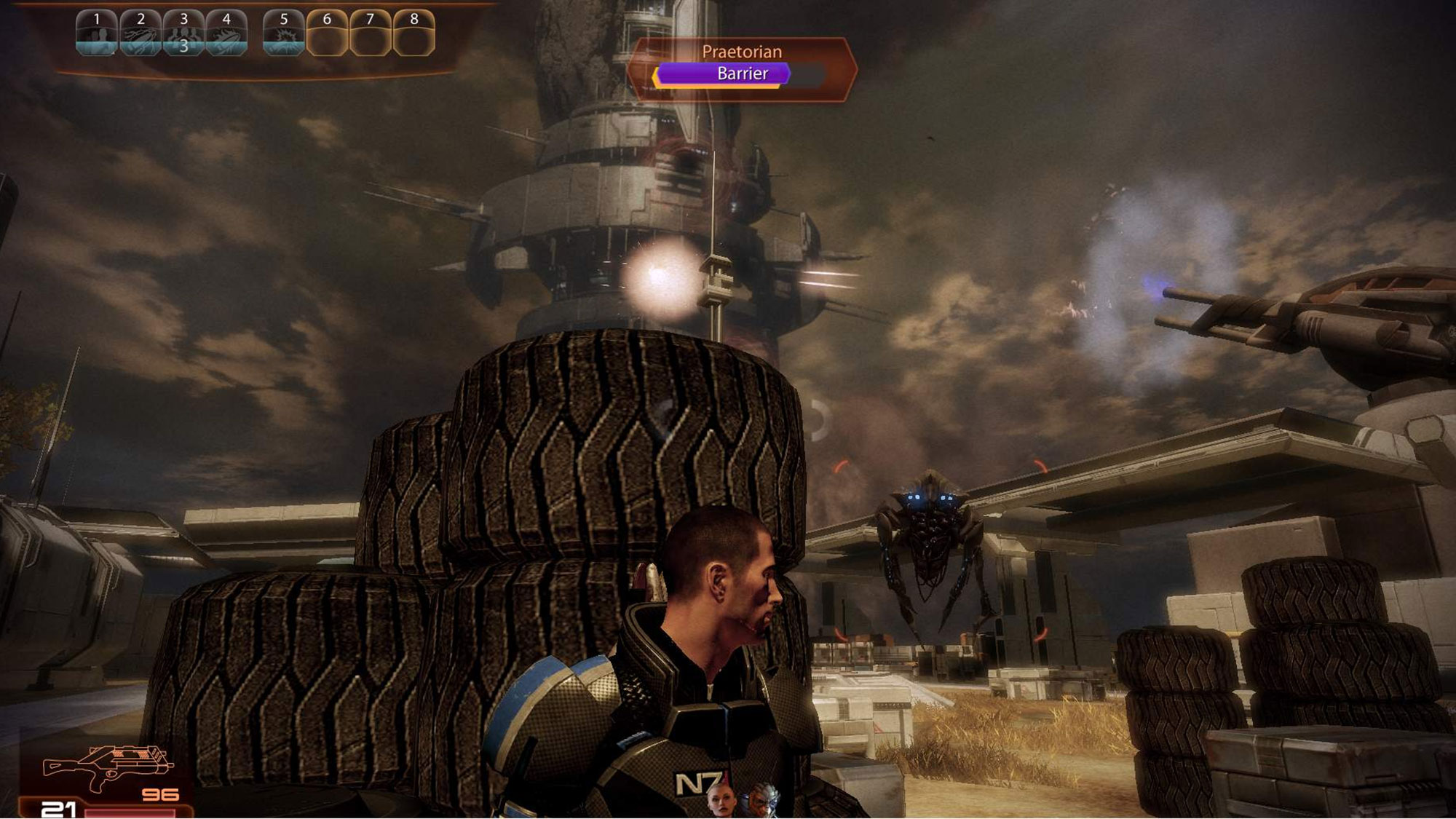
While the first game had deeper customization options and the third game had more gameplay options, there's something about Mass Effect 2 that makes it feel fresh and relevant, even nine years later. In this game, you'll take command of Cmdr. Shepard, a starship captain who's out to save the galaxy for a second time. Since you can import your save file from the first game, Cmdr. Shepard will come back just the way you remember him or her: same appearance, same class and same narrative-shaping choices. That the game lets you hit the ground running (save for a few plot-related setbacks) is one of its big selling points.
The story also presents a sense of urgency, while still encouraging you to explore the galaxy to its fullest. The Reapers — extragalactic machines, bent on culling all sapient life — are on their way back to the galaxy, and the xenophobic Illusive Man has saved Shepard's life in exchange for a favor. Shepard must assemble a crack squad of experts, from the loyal alien Garrus Vakarian, to the unhinged telekinetic Jack, to the robotic hive mind Legion. Recruiting squad members is important, but in order to survive Shepard's "suicide mission" against the Reapers, you'll need to gain each companion's loyalty, giving you plenty of incentive to travel from planet to planet, completing a variety of side quests.
With refined action/RPG gameplay and lots of opportunities to shape the story via dialogue choices, Mass Effect 2 is a complex, satisfying adventure that successfully bridges the gap between its inventive predecessor and its ambitious successor. — Marshall Honorof
2. God of War (2018)
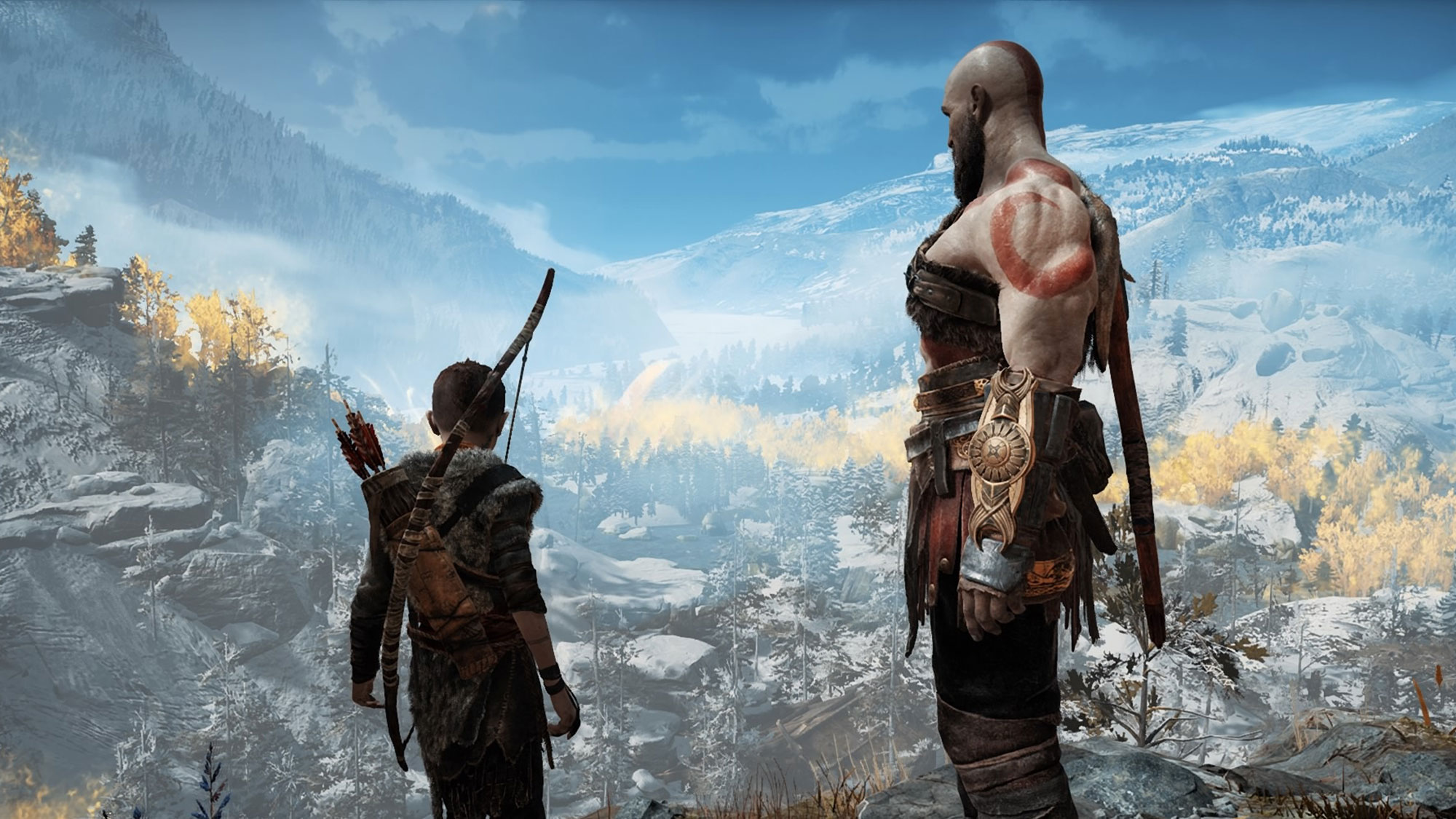
There's never been a bad God of War game. The PSP spinoffs were good. The unnecessary prequel was good. Even the Facebook text adventure was, somewhat surprisingly, good. But aside from the very first game, none of them were "great." After the developers realized that God of War was going to be a series rather than a one-off, they had to walk back the first game's satisfying ending and provide bigger and badder challenges for Greek demigod Kratos. But while Kratos became angrier and ever more violent, the story never seemed to justify his rage. Was Kratos really Greece's only hope against an arrogant pantheon, or was he just a monster, ripping gods apart because he didn't feel like finding a better outlet for his fury?
Rather than sidestep these questions, God of War (2018) answers them directly. This soft reboot picks up more than a decade after God of War III, focusing on an older, more subdued Kratos trying to live a quiet life in the Norselands with his new wife, Faye, and son, Atreus. But when Faye dies, the grieving father and son must travel to the top of the tallest mountain to scatter her ashes. Their journey attracts just the wrong kind of supernatural attention. In a touching story, Kratos struggles to prevent the cycle of deicidal violence from starting over again, while trying to connect with his son as both a father and a warrior.
The story is the star attraction in God of War, but the gameplay is also riveting, with lots of skills to learn, gear to upgrade and special moves to master. The camera follows Kratos more closely than ever, giving combat a feeling of immediacy and precision that the series had never really had before. With a huge world to explore and plenty of side quests to complete in this title, it's a joy to simply spend time in the game — and heartbreaking to finish it. — Marshall Honorof
1. The Legend of Zelda: Breath of the Wild (2017)
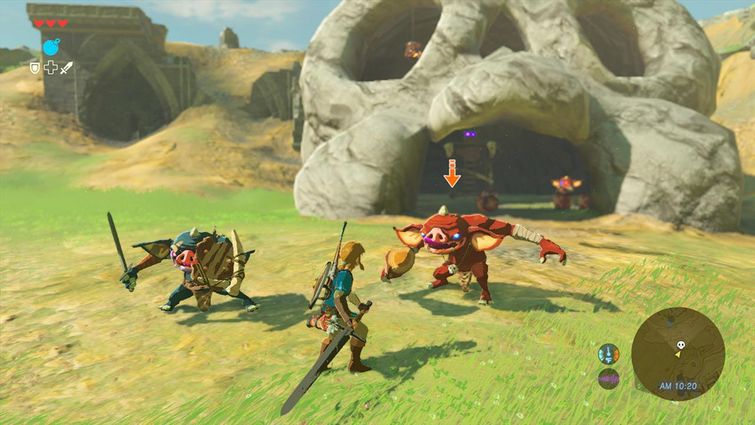
Of all the games on our Game of the Decade list, The Legend of Zelda: Breath of the Wild is the only one that the Tom's Guide staff didn't actually discuss. That's because as soon as we nominated it, we agreed unanimously that it deserved a spot. When we voted, no writer ranked the game lower than third place out of 30 entries. It's almost impossible to find a game that's universally beloved among every kind of gamer — and yet here we are. Link's latest adventure is one of his best ever.
Instead of traditional Zelda dungeons, Breath of the Wild delivers 120 shrines cleverly scattered throughout the world, each of which tests you with a micro-puzzle. Link can concoct delicious dishes and arcane potions from just about any ingredient he finds scattered throughout the world. Almost every enemy drops a unique weapon, and it's worth trying them all. Finally, the world itself is simply enormous, with secrets hidden around every corner and no insistent sidekick telling you where to go. Hyrule is yours to explore at your own pace, and you'll want to explore every inch before your time with this massive game ends.
None of this would matter without an engaging story, however, and that's where Breath of the Wild shines. This time around, Link and Zelda have already failed in their quest. One-hundred years have passed since Calamity Ganon ravaged Hyrule, and Link, who has just awakened from a sort of suspended animation, has one last chance to set things right. Much of the story takes place through flashbacks, which, like everything else in the game, you'll have to discover on your own. Everything leads up to one of the most epic finales in the series.
It's impossible to list everything that makes Breath of the Wild so good, but it's easy to see just how many people the game has enchanted. We get a title like Breath of the Wild only, well, about once per decade. — Marshall Honorof
Sign up to get the BEST of Tom's Guide direct to your inbox.
Get instant access to breaking news, the hottest reviews, great deals and helpful tips.
Tom's Guide upgrades your life by helping you decide what products to buy, finding the best deals and showing you how to get the most out of them and solving problems as they arise. Tom's Guide is here to help you accomplish your goals, find great products without the hassle, get the best deals, discover things others don’t want you to know and save time when problems arise. Visit the About Tom's Guide page for more information and to find out how we test products.

